Category Archives: The Torah-Books of Moses
Nathan’s Commentary on Parashat Yitro Exodus 18:1–20:23

Exodus 18
Exodus 18:2–3, After he had sent her back.This verse suggests that Moses divorced his wife after their altercation over the circumcision of their sons (Exod 4:24–26). If so, what are the spiritual implications of this for us today?
The phrase sent away/back in verse two is the Hebrew shilluach which according to Strong’s Concordance and Gesenius’ Hebrew Lexicon can be a biblical term referring to divorce. Shilluach is from shalakh, a basic verb meaning “to send,” where in Isaiah 50:1 and Jeremiah 3:1 the prophets use it referring to YHVH’s divorce from the house of Israel or Ephraim.
Though rabbinical commentators Rashi and Hirsch fail to note the possibility of Moses’ divorce (Jewish Torah commentators tend to gloss over the faults of their great biblical heroes), Medieval Jewish Torah scholar Baal HaTurim notes this possibility in his commentary.
Yet in Exodus 18:2, YHVH still views Zipporah as Moses’ wife. What is going on here? Before this, Zipporah seems to have evidenced reluctance at obeying YHVH’s command to circumcise their sons (Exod 4:25), so did Moses put her away (divorce her) as a result? Was Moses, as the human “savior” of Israel from Egypt and an antetype (or prophetic forerunner) of Yeshua the Messianic Savior (Deut 18:15–19) in that he had to deal with a rebellious wife, even as Yeshua (in his preincarnate state as YHVH of the Tanakh) had to deal with his rebellious Israelite wife and eventually had to put her away?
Zipporah is never again mentioned in the Torah and, in fact, we see the possibly that the divorced Moses even married another woman (Num 12:1)—apparently a black woman from Ethiopia. Is this a prophetic picture of Yeshua remarrying his former wife (Israel) during the time of the Renewed/New (Marriage) Covenant (Ketubah), who has adulterously mixed herself with the nations and returns to him in a mixed racial (spiritually and biologically-speaking) condition (Hos 7:8)?
Thus, it is possible that Moses had to divorce his wife because she not only was reluctant to circumcise her sons, but there is no biblical record that she followed Moses in his divine commission to lead the children of Israel out of Egypt much less into the wilderness. If this is the case, then this is reminiscent of Lot’s wife who refused to follow her husband at YHVH’s command and chose instead to return to Sodom. It happened in Bible times and still does in our time that YHVH gives a ministry commission to a man and the wife refuses to follow with the marriage ending in divorce as the two go their separate ways.
If Moses led Israel as a divorced and remarried man, does this change your perspective about him? This could also affect our perspective on divorced people in ministry whose unsaved spouses are adversarially opposed to their spouses divinely commissioned ministry calling.
Moses and the Ethiopian Women. Moses’ marriage to the Ethiopian woman can be found in Josephus Antiquities of the Jews, book 2, chapter 11 (Ant. 2:11.1–2). According to Josephus based on Jewish tradition, she was one of the “spoils” of war when Moses, on behalf of the Egyptian monarchy, led an Egyptian army triumphantly against the Ethiopians who had invaded Egypt. The Ethiopian woman was a daughter of the king of Ethiopia. So quite possibly after Moses fled Egypt for Midian as a wanted criminal, he must have assumed that he would never return to Egypt and see his Ethiopian wife again, which, in his mind, freed him up to marry Yitro’s daughter, Zipporah. This marriage would have been before Moses was “saved” and before Elohim called and commissioned him at the burning bush in Exodus chapter three. So, when Zipporah refused, apparently, to follow him on his divinely appointed mission to Egypt, she abandoned him, which is why Moses had dismissed, divorced or sent her back (see Exod 18:2 where we read that Moses had “sent her [Zipporah] back,” Heb. shillûach meaning “dismissed, i.e., divorced”). It also appears that the righteous and YHVH-fearing Yitro tried to reconcile Moses and Zipporah when he brought her to Moses in Exodus 18:6. Moses implored Yitro to remain with him and accompany him in the wilderness (Num 10:29). However, the aged Yitro, and presumably along with his daughter, refused Moses’ plea ostensibly preferring the safety, security and familiarity of his own home in Midian over the uncertainties and inconveniences of wandering like a nomad in the wilderness. So Moses let Yitro return (Exod 18:27) evidently taking Zipporah with him, for it appears based on the textual evidence that she wanted nothing to do with Moses’ mission. Therefore, Moses, being left alone without a marital partner to accompany him on his divine mission, may have called back his former Ethiopian wife to join him, which she obviously did causing the scandal we read about it Numbers 12. If these suppositions are correct which the biblical and secular historical evidence seems to suggest that they are, this all goes to show that love, marriage and divorce and remarriage can lead to difficult, complex, sticky and divisive issues. Nevertheless, and obviously, YHVH’s merciful grace prevailed and Moses went forward approved of Elohim on his mission of leading the Israelites to the Promised Land.
To be sure, divorce and remarriage is not YHVH’s ideal for people because of all the attendant and problematic issues it engenders. The Bible is clear. YHVH’s perfect will from the beginning has always been one man for one woman until death separates them. But humans are imperfect, and YHVH’s grace is sufficient, and so there for his grace go each of us, as the saying goes.
Exodus 18:24, Chose able men. Here we see Moses choosing elders or judges over the congregation of Israel. These were “able men of accomplishment” in Israel. Compare this with Paul’s instructions about the qualifications of an elder in 1 Timothy 3:1–13 and Titus 1:5–9. If Moses was divorced at the time of his choosing the elders of Israel, does this clarify Paul’s statement that an elder must be “the husband of a [often mistakenly misunderstood to mean “one’s first and only wife” —a meaning not suggested by the Greek] wife”(1 Tim 3:2)? It would appear that the Scriptures do not prohibit divorced and remarried people from holding leadership positions (if the grounds for divorce are biblically legal) in the household of faith as some churches teach.
Exodus 19
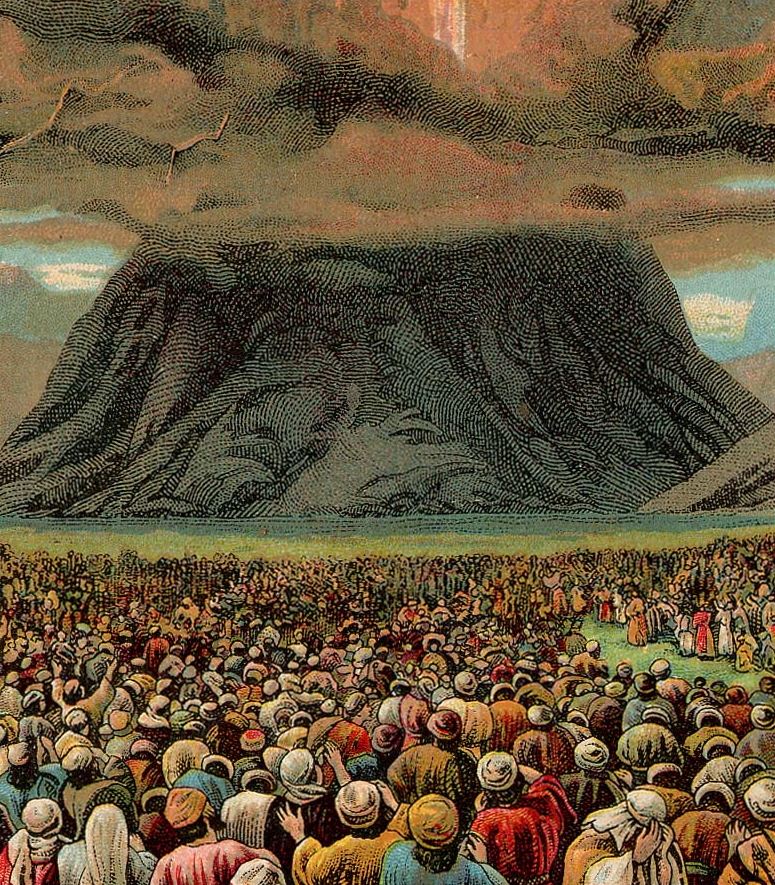
Exodus 19:1, The third month. YHVH gave his Torah-instuctions in righteousness to Israel at Mount Sinai most likely on the Feast of Weeks (Chag haShavuot or Pentecost; Lev 23:15–21), which occurred in the third month of the biblical year. On the very same day, some 1,500 years after YHVH gave the Israelites his Torah-law at Mount Sinai another momentous event occurred. On the day of Pentecost in Acts chapter two, the Spirit of Elohim descended upon Yeshua’s disciples—the literal descendants of the children of Israel—who were gathered in one accord, and on that day YHVH wrote the very same Torah on the hearts of the disciples in fulfillment of Jeremiah’s prophecy (Jer 31:31–33 and Acts 2:1, 37 cp. Heb 8:7–13). There is a continuity of theme and purpose between these two events: a legally delineated standard of righteousness. YHVH does not change, for he is the same yesterday, today and forever!
Exodus 19:2, Mount Sinai. Mount Sinai, also known as “the mountain of Elohim” (Exod 3:1; 4:27; 18:5; 24:13; 1 Kgs 19:8), and is a geographical symbol of YHVH’s exalted earthly presence and heavenly government here below. Israel camped at the base of this mountain, positioning themselves through a process of sanctification to receive YHVH’s Torah. Empowered with the word of Elohim, YHVH commissioned the Israelites to be his special people, his kings and priests or, in other words, earthly evangelistic ambassadors to take his instructions in righteousness to the world. Likewise, Yeshua instructed his disciples to tarry or position themselves on another mountain—Mount Zion in Jerusalem—until they were endued with power from on high (Luke 24:49). For what purpose? Once empowered by the Spirit, and with the Torah written on their hearts (Acts 2:37), and as devoted followers of Yeshua the Living Torah-Word of Elohim (John 1:1, 14), they would be heaven’s spiritual salt and light to the nations (Matt 5:13–14; Acts 1:8), while walking out the Torah as his own chosen, special people as well as YHVH’s holy and royal priesthood (1 Peter 2:5, 9–10). Yeshua’s promise of empowerment and the commission he gave to his disciples leading up to and on the day of Pentecost has never changed from then until now. As redeemed believers in Yeshua, we are not only his disciples, but are the spiritual descendants of the ancient Israelites (Gal 3:29; Rom 4:16; 9:8–11 cp. Eph 2:11–19), and our mission is to pick up where our failed forefathers left off and finish the job of taking YHVH’s Torah (both the Written Torah and Yeshua the Living Torah) to the nations (Matt 28:18–20; Mark 16:15–18 cp. Matt 10:6)—a job that ancient Israel failed to accomplish because of disobedience to the Torah brought on by hardness of heart and unbelief (Ps 95:7–10; Heb 4:1–7).
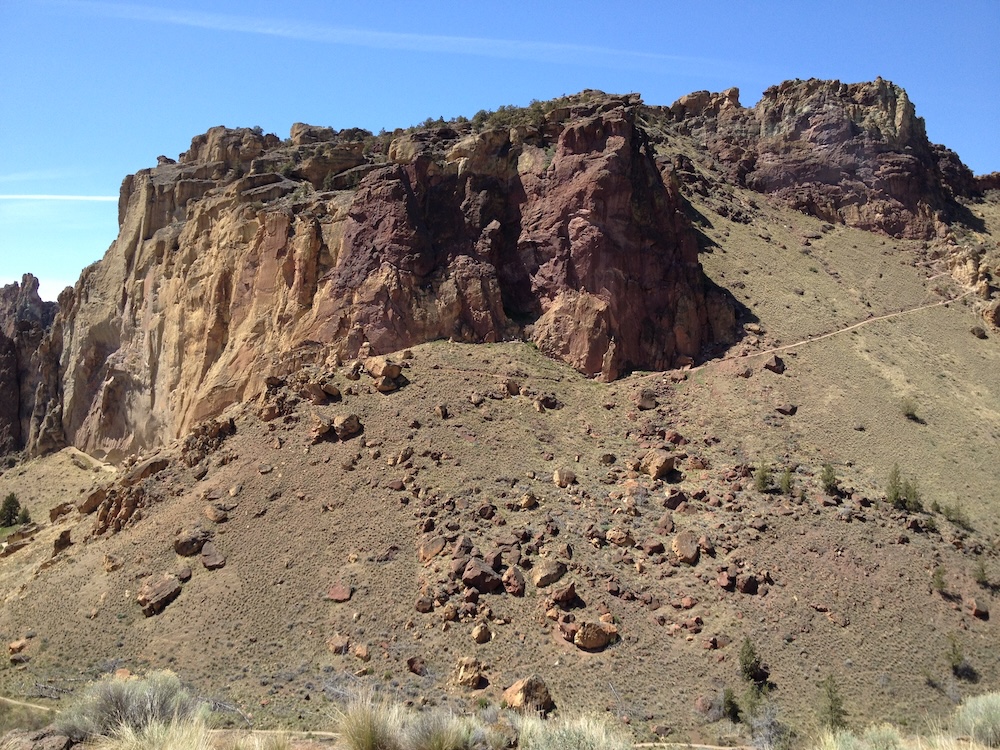
Before the mountain.The children of Israel coming to Mount Sinai, preparing themselves to meet YHVH Elohim, and to receive his instructions in righteousness is symbolic of the spiritual path that all humans must take if they want to meet their Maker as we will learn in the brief study below.
Throughout history, humans have invented a myriad of religions and philosophical ideologies in an effort to reconcile man to heaven or some great power that is above him. This is because the Creator made man in his own image, made man to be connected to and dependent upon his Creator and placed eternity in the heart of man (Eccl 3:11); therefore, humans instinctively know that there is something more to this physical life—there is something “out there” beyond each of us that beckons us to a higher place—something eternal and spiritual. Humans instinctively know that they must improve themselves morally in order to get there. Some people follow that instinct and some reject it. In either case, the Creator has given each of us a conscience, that like the needle on a compass, points us to true north. The problem is that (a) man does not know how to get there and (b) he has internal (i.e., his rebellious and lawless sin nature; Jer 17:9; Rom 8:6–8; Jas 3:15) and external forces (i.e., the world the devil, as well as all the invented, non-biblical religions of the world; Jas 3:15) that keep him from find the way. All of these false paths lead everywhere else but to “true north.” In an effort some reach their Creator and to fulfill the inner longings of their hearts, man has invented religions and philosophies to get him to “heaven” through his own efforts but without dealing with the root reason that has prevented man from coming into the presence of his Creator. One thing keeps man bound to this earth, lost and confused; it is sin. No matter what his or her religious or philosophical efforts may be, it is impossible for one to pull oneself up by one’s own bootstraps. Until each human deals with the sin issue in his or her life, he will not progress one inch toward upward toward his higher destiny.
Only one religion, ideology, philosophy or whatever else you want to call it deals with the sin issue, and that is the Truth of the Bible. Until each man recognizes that his sin has separated him from a perfect, holy (totally pure, holy or seet-apart, righteous, all-loving and transcendent Elohim and that only by going through the spiritual cleansing process that heaven prescribes for the disease called sin can one find the answers to the deeper questions of life, resolve the sin issue that separates earth from heaven, and then eventually come into the presence of one’s Creator during and after this physical life.
Through Moses, a man who was prophetic picture of Yeshua the Messiah, YHVH led the Israelites to the foot of the Mount Sinai representing the presence of Elohim; it was an earthly metaphor for of heaven itself and the very throne room of the Creator.
To experience the presence of Elohim, humans are required to consecrate themselves before hand, and only then is one allowed one to climb upward spiritually to meet YHVH. This is done through a process of spiritual consecration or sanctification and involves getting cleansed from the defilements or rudiments of the world, flesh and devil (Jas 3:15; Col 2:8, 20), even as the Israelites cleansed or consecrated themselves physically in preparation to meet their Maker (Exod 19:10–11, 14).
A spiritual relationship with Elohim through the cleansing blood of Yeshua is the only cleansing process which is acceptable to YHVH Elohim by which humans can transcend spiritually. There is no other way (1 Pet 1:2; 18–19; 1 John 1:7; Rev 1:5; 7:14; Heb 10:19–22; 9:12; 12:24; Matt 26:28; Eph 1:7). Yeshua is literally the only way to the Father in heaven (John 14:6; Acts 4:12). He is the spiritual ladder that each person must climb (John 1:51) to attaint the summit of Mount Sinai representing the exalted presence of Elohim (Gen 28:12). Yeshua is literally the gateway or door to heaven (Gen 28:17; John 10:7–9; 14:6).
The Book of Exodus’ account of the children of Israel coming into the presence of Elohim is an illustrative example of the process that each of us must go through to meet our Maker on his terms, not our terms.
Of course, this cleansing process or spiritual journey did not start at Mount Sinai for Israelites. It started back in Egypt when they put their faith in the blood of the lamb to save them from Elohim’s judgment against sin, and when they had then deleavened their lives of sin, and then passed through the Red Sea—a picture of baptism for the remission of sins. These are all symbolic and prophetic pictures that point to the steps that each person must take if they want to see Elohim. These steps include acceptance of Yeshua the Messiah, the Lamb of Elohim and his death on the cross, putting sin out of one’s life, and then being baptized for the remission of sins.
To the spiritually astute whose eyes are opened to heaven’s light, these truths should be as plain as day, but human pride and rebellion against the Truth of Elohim have blinded most humans from reality.
Now that you know this simple Truth, what will you do about it?

Exodus 19:3, Moses. The name Moses/Moshesh literally means “drawing out or rescued.” What was Moses drawn out of or rescued from? From the waters of the Nile River in Egypt. Water can be a biblical metaphor for humanity, and Egypt a metaphor for Satan’s world. That is to say that Moses was drawn out of or rescued from the seas of humanity. YHVH then used Moses to rescue, draw forth or fish the children of Israel out of the same sea of Satan’s world and lead them to YHVH, which brings us to Mount Sinai. There YHVH gave his people laws that would help to bring them into a loving relationship with him.
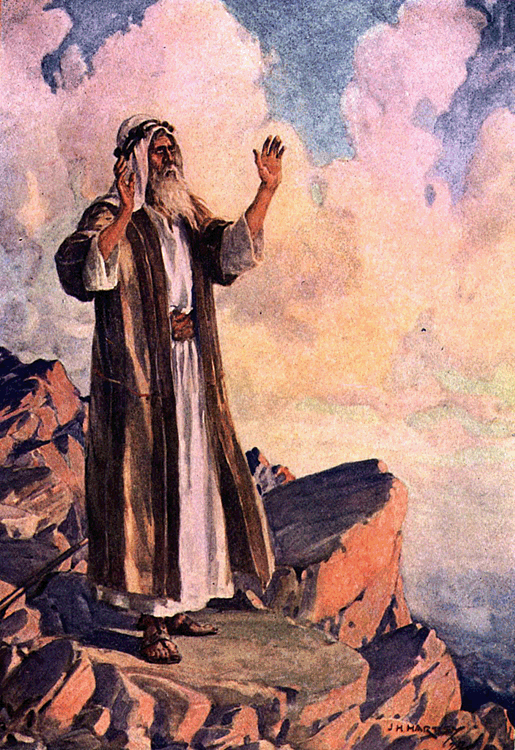
Moses went up to Elohim. Moses acted as YHVH’s intermediary to prepare the Israelites for their “marriage” to him. In a repeat of history, Malachi prophesied that in the last day YHVH would send other intermediary forerunners to turn the hearts of the children back to the foundations of their faith including the Torah before the return of Yeshua, thus preparing the saints to be the bride of Yeshua (Mal 4:1–6). As YHVH gave the children of Israel, his spiritual bride, three days to prepare themselves to meet him (Exod 19:11), so YHVH is likewise giving his end time saints time to prepare themselves to meet Yeshua, their heavenly Bridegroom at this second coming. As Malachi prophesied and Yeshua alluded to in his Parable of the Ten Virgins, returning to the ancient Torah-roots of the saints’ faith is central to this preparation process.
Continue readingNathan’s Commentary on Parashat Beshalach Genesis 13:17–17:16

Exodus13
Exodus 13:18, 21, But Elohim led the people…and YHVH went before them…to lead the way. The Bible records that YHVH speaks to his people in various ways, and still does to this day. He communicates with his people…
- Through his written word (Ps 119:105).
- By his Holy Spirit who leads YHVH’s people to into all truth (John 16:12).
- Through his divinely appointed leaders (Eph 4:11–16).
- By directing the steps (through life’s circumstances) of a righteous man (Ps 37:23–24; Prov 16:9).
- By directing the hearts of men (Prov 21:1).
- Through prophetic words (Num 12:6).
- Through dreams and visions (Num 12:6).
- Through wise counselors (Prov 24:6).
- Through Divine Messengers from heaven (e.g., Judg 6:11–14; 13:3).
Exodus 14
Exodus 14:13–15, And Moses said. The first four statements that Moses makes in these two verses presupposes the four fear responses that the Israelites would naturally have had when trapped between the Egyptian army and the Red Sea. What were the Israelites’ reactions? Maybe we can learn something about our own responses when faced with dire situations.
To those who felt hopeless and depressed and essentially wanted to commit suicide by fleeing, which meant certain death since there was nowhere to go: fleeing meant certain death either by drowning in the sea or by Pharaoh’s army, Moses said, “Do not be afraid. Stand still and see the salvation [Heb. Yeshua] of YHVH.”
To who longed for the good old days of their past lives back in Egypt, Moses said, “The Egyptians whom you see today, you shall see no more.”
To those who wanted to fight, Moses said, “YHVH will fight for you.”
To those who wanted to just complain to Moses and YHVH about their plight, Moses said, “Hold your peace.”
When faced with similar impossible situations, we typically have the same responses as that of the children of Israel, when all we have to do is to stand still in faith and wait on YHVH to supernaturally deliver us. But there’s more. Faith isn’t passive. It’s active. This is where the fifth statement—this one made by YHVH—comes into play.
YHVH command the Israelites to “Go forward” in faith! YHVH expected Moses, the leader, to lead the way. YHVH told the Israelites to confront their fears including the fear of death and to step into the Red Sea. Only when the people’s leader stepped forward in faith and placed his foot into the Red Sea did the sea part and the deliverance of YHVH became evident.
Note what Moses told Israelites in this first statement: “Stand still and see the salvation [Heb. Yeshua] of YHVH.” As already noted previously, the pre-incarnate Yeshua the Messiah was the Messenger of YHVH who was with the children of Israel in the fire cloud positioned between the Israelites and the Egyptians. When Yeshua the Messiah is in your camp, there is nothing to fear! This was a lesson in faith that the Israelites had to learn—and one we have to learn as well. Let’s not forget the words of the apostle:
I can do all things through Messiah which strengthens me. (Phil 4:13)
Nay, in all these things we are more than conquerors through [Messiah] that loved us. (Rom 8:37)
What shall we then say to these things? If Elohim be for us, who can be against us? (Rom 8:31)
Exodus 14:13, Salvation. The word salvation here is the Hebrew word Yeshua. Think about this for a moment in light of the context in which this word appears in this story, and the implications for your own life when you are confronted with difficult situations.
Exodus 14:19, Angel [or Messenger] of YHVH. This is divine entity was none other than the preincarnate Yeshua—the Messenger or Word of Elohim before he was made flesh (John 1:1, 14).
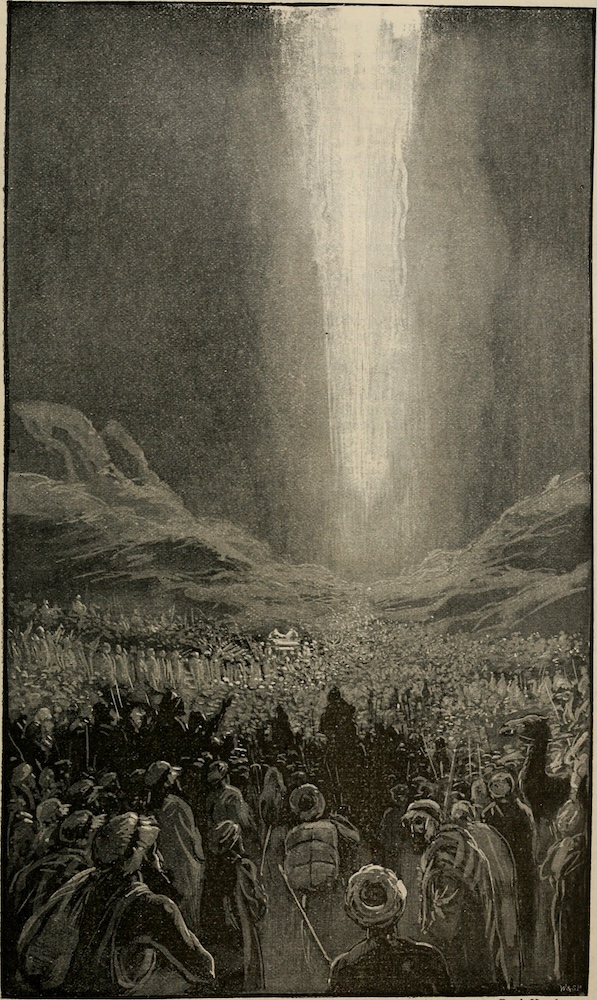
Went behind them. Fire does two things. It both destroys and purifies substances depending on the durability of their composition. It consumes that which is flammable (e.g., wood, hay and stubble) and refines or purifies that which is inflammable (e.g., gold, silver and precious stones; see 1 Cor 3:12–15). To those people whose lives are characterized by wood, hay and stubble (spiritually speaking, this refers to sin and the works off the flesh), fire is a threat and terror. On the other hand, to those whose lives are like gold, silver and precious stones (spiritually speaking, this refers to works of righteousness and the fruit of the Spirit of Elohim), fire is welcomed, since they have nothing to fear. This is because fire will only refine, not destroy them spiritually.
Moreover, fire creates light. To those whose lives are characterized by light (i.e., truth and righteousness), fire is a positive thing, since it exposes sin and gives them light by which to go forward spiritually. To those people who live in spiritual darkness (i.e., the world, the flesh and the devil), as was the case with Pharaoh and Egypt (a symbolic picture of Satan and the world), and those who love sin and hate Elohim and his righteousness (John 3:19–20), fire and light are feared because it will not only expose their evil deeds, but will consume them through divine judgment (see Rev 20:15).
Therefore, the fiery flame that separated the Israelites from the Egyptians was a good thing and a blessing for the former and a horrific thing, a curse and a terror for the latter. In fact, in Exodus 15:7, in poetic terms, the Egyptians (a biblical metaphor for rebellious and unrepentant sinners) are likened to stubble that YHVH destroys in his wrathful judgment. This same thing will occur again on a global scale when the earth is burned with fire and the wicked become ashes under the sole’s of the feet (Mal 4:1–3) of the righteous after the white throne judgment (Rev 20:11–15).
What is your life comprised of? Wood, hay and stubble, or gold, silver and precious stones:
For no other foundation can anyone lay than that which is laid, which is Yeshua the Messiah. Now if anyone builds on this foundation with gold, silver, precious stones, wood, hay, straw, each one’s work will become clear; for the Day will declare it, because it will be revealed by fire; and the fire will test each one’s work, of what sort it is. If anyone’s work which he has built on it endures, he will receive a reward. If anyone’s work is burned, he will suffer loss; but he himself will be saved, yet so as through fire. (1 Cor 3:11–15)
Exodus 14:22, The children of Israel went. According to Jewish tradition (e.g., see The ArtScroll Stone Edition Chumash commentary on verse eight), the Red Sea crossing occurred on Nisan 21 (or the month of the Abib, which is the first month of the biblical calendar occurring in the early spring, Exod 13:4), which is the last day of the Feast of Unleavened Bread, even though the Scriptures does not explicitly state this. The Jewish sages deduce this from the chronology of events leading up to the crossing. On the fifteenth day of the first month, they reason, Israel left Egypt and traveled from Rameses to Succoth. On the sixteenth day, they traveled from Succoth to Etham, and on the seventeenth from Etham to Pi-hahiroth. Then on the eighteenth it was reported to Pharaoh that Israel had been gone for three days. On the 19th and 20th Pharaoh mustered his army and pursued Israel, and on the twenty-first day of the first month Israel crossed the Red Sea, which was the last day of the Feast of Unleavened Bread.
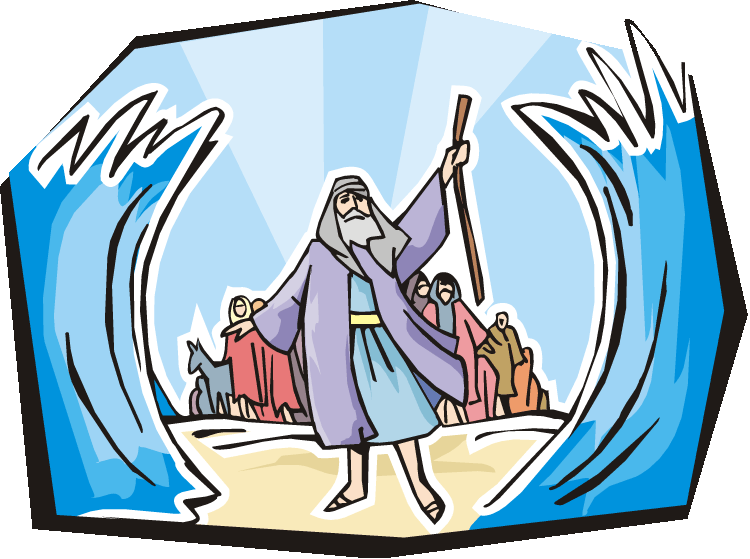
The [Red] Sea. The Israelites went through the midst of the Red Sea. Like the killing of the Passover lamb and the painting of his blood on the door posts, the crossing of the Red Sea prophetically pointed forward to the message of the gospel and the steps a disciple of Yeshua must take in his spiritual journey. Paul states in his letter to the believers in Corinth,
Moreover, brethren, I would not that ye should be ignorant, how that all our fathers were under the cloud, and all passed through the sea; and were all baptized unto Moses in the cloud and in the sea; and did all eat the same spiritual meat; and did all drink the same spiritual drink: for they drank of that spiritual Rock that followed them: and that Rock was Messiah. (1 Cor 10:1–4)
The Israelites going through the Red Sea is a prophetic picture of baptism for the remission of sins of the new believer. Red reminds us of the blood of Yeshua that cleanses sinners of sin. Moreover, sea water is salty and salt is a biblical symbol representing cleansing, purification, preservation and eternity and all of which point to the efficaciousness of Yeshua’s atoning blood on behalf of the redeemed saint.
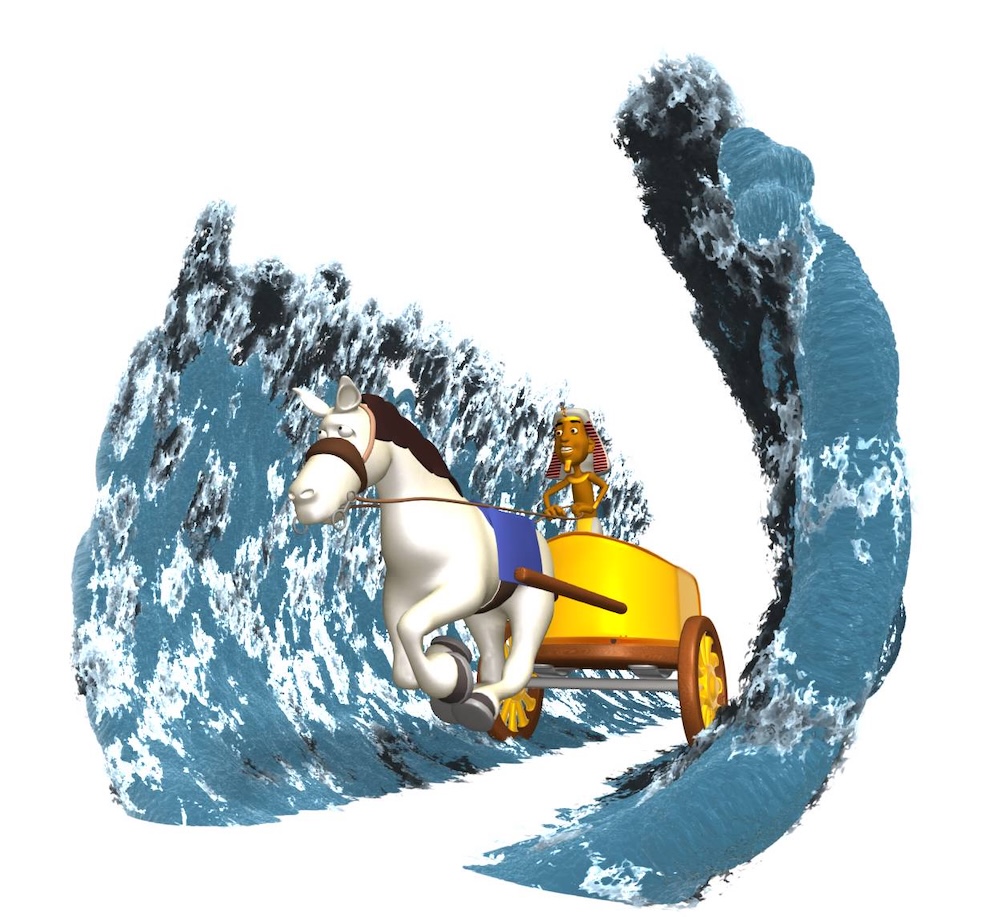
Now let’s look at Israel’s Red Sea passage in light of its larger gospel message context. While back in Egypt, YHVH sent Moses the evangelist to the Israelites with the message of redemption from their Egyptian slave masters. To be spared from Eloim’s judgments against sin, all the Israelites had to do was to believe the evangelist (i.e., the preacher of the gospel message), when he instructed them to kill a lamb and to put its blood on the doorposts of their houses (i.e., have faith in the shed blood of Yeshua the Messiah who died on the cross to set us free from the penalty of our sins). Those who obeyed these instructions were spared Elohim’s judgment against sin.
Next, the Israelites were told to put leaven (i.e., a picture of sin) out of their houses (a symbol of their lives), eat unleavened bread (i.e., a picture of accepting Yeshua unconditionally and living a sin-free life from that point forward) and to leave Egypt (i.e., a picture of leaving behind the world’s ways and lifestyles).
After that they went through the Red Sea (i.e., a picture of baptism for the remission of sins).
These were merely the initial steps that the Israelites had to take on their journey to the “Promised Land.”
After that, they came to Marah, then to the desert oasis of Elim, then they received manna from heaven and water from the rock.
Through these steps, the Israelites learned about sin, redemption, the Messiah, how to have faith in Elohim, and how to overcome the triple headed enemy of the world, the flesh and the devil.
For those readers who can discern the code, the gospel message is encrypted in the steps that the Israelites took while traversing the wilderness (a biblical metaphor for our physical life on earth) en route to our own promised land as immortalized and glorified children of Elohim in his eternal kingdom. What the Israelites went through, how they reacted and the consequences of their actions can act as a sort of spiritual road map to aid modern saints in guiding them forward in their own spiritual journey toward inclusion in the kingdom of Elohim as his glorified children. The wise saint will learn from both the mistakes and triumphs of the Israelites. So may we all study the Bible to show ourselves approved, and may YHVH help us to learn our lessons well, so that we may overcome the world, the flesh and devil and be included in YHVH’s everlasting kingdom. Amein!
Chapter 15
Continue readingNathan’s Commentary on Parashat Va’eira Exodus 6:2–9:35

Exodus 6
Exodus 6:1–8, YHVH redeems Israel.
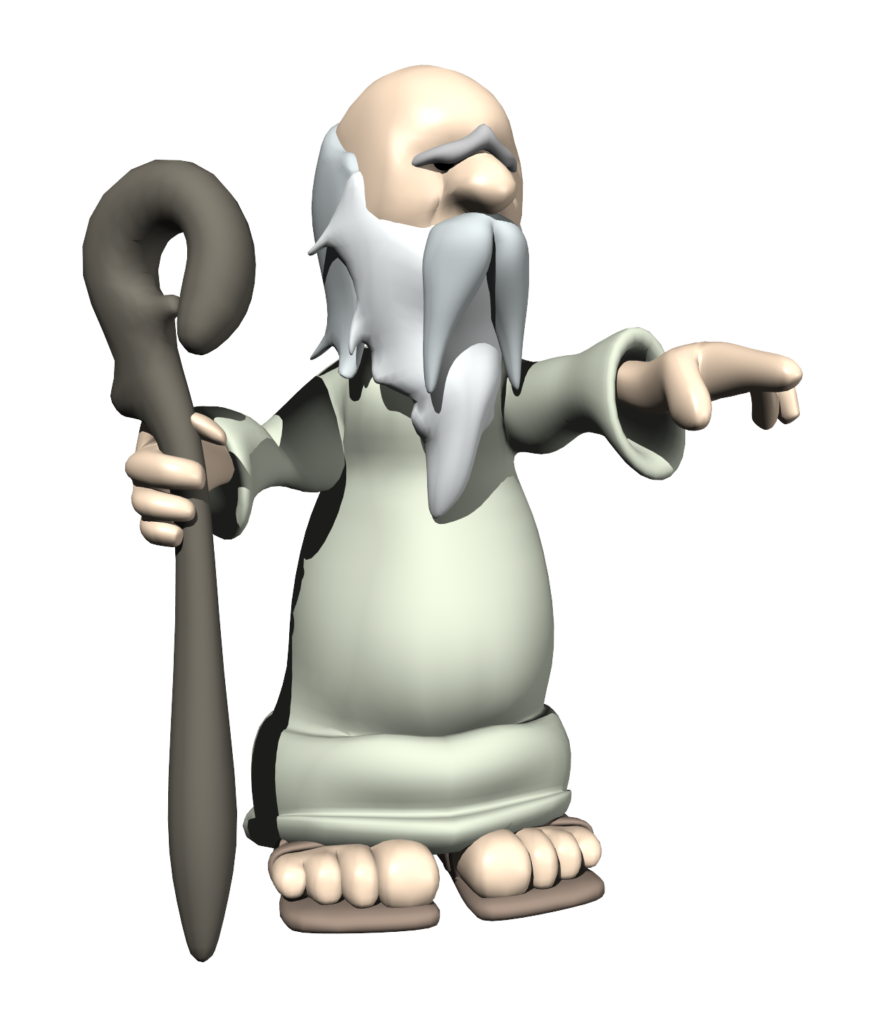
Of Frail Men and a Faithful Elohim—The Roots of the New Covenant Revealed
How many times have you started off on a new venture full with enthusiasm and alacrity only to have it fail immediately out of the starting gate? We all have our stories to tell. The difference between one who is successful and one who is not is that the former does not give despite initial failure. Though Moses was one the Bible’s greatest heros of faith, he experienced apparent failure in his initial efforts to free his people from Egyptian tyranny. However, thanks to overcoming faith in YHVH, he “let go and let God” and became the great liberator of the Israelite people and victor over that era’s most powerful nation—a biblical metaphor for the world, the flesh and devil. There is an inspiring lesson and an encouraging message in this story for each of us to this day.
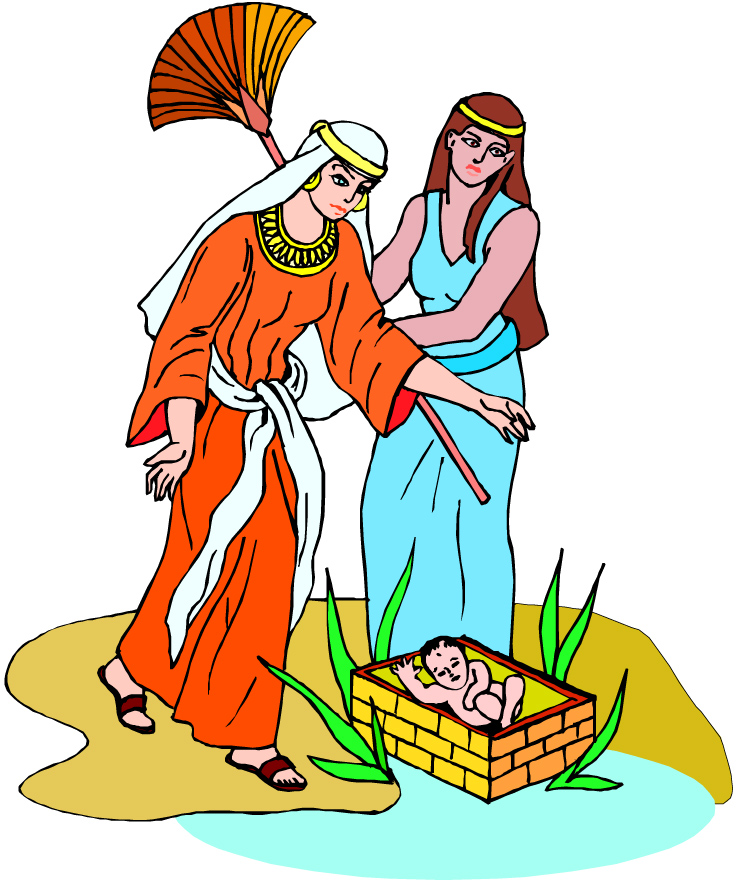
Moses’ first brushes with defeat began the moment he exited the womb, for he was born with a death sentence on his head as he narrowly escaped being aborted. At the last moment, he was adopted into an alien, heathen family and was raised as a prince in the king of Egypt’s household estranged from his Israelite heritage. We can now look back with perfect 20-20 hindsight and see how YHVH orchestrated circumstances in Moses’ life to accomplish a divine destiny, but at the time both Moses and his Israelite family were totally oblivious to higher purpose. For them, it was a day-by-day struggle for survival much less a faith walk.
Despite an auspicious and promising future as a member of the Egyptian royal family in the region’s most power nation, Moses suddenly found himself fleeing for his life as a wanted criminal—a murderer. From riches and fame, he escapes to the backside of the desert out of the legal jurisdiction of the Egyptian authorities where he becomes a lowly peasant tending sheep for forty years. As a shepherd leading quiet, bucolic life, he end up marrying the sheep rancher’s daughter, but his life struggles do not end there.
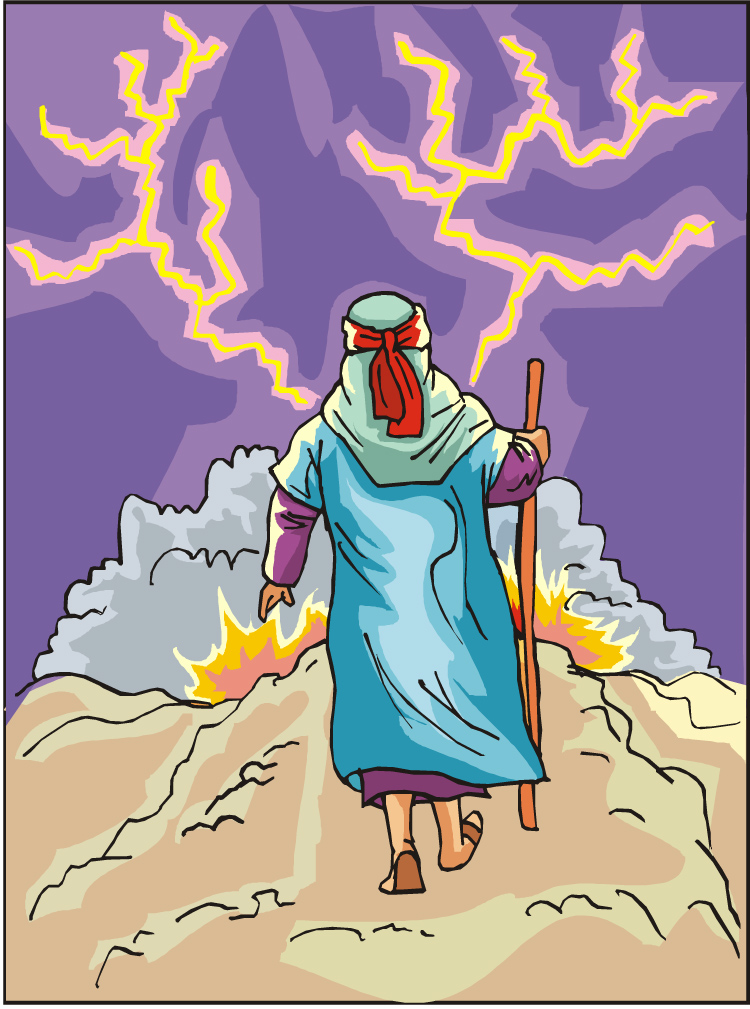
Two sons are born to him. And they all live life happily ever after. Right? Well, not exactly. While leading a rather mundane life for decades tending sheep in the desert, he unexpectedly has a divine encounter. While tending sheep, YHVH suddenly drops into his life through the spectacle of bush that is engulfed in flames but is not consumed. At that moment Moses’ life is suddenly turned upside down. Then and there, YHVH commissions him to return to Egypt and demand that Pharaoh set the children of Israel free. This is when Moses’ troubles really begin.
A happy marriage, the father of two, a peaceful life as a shepherd—what could go wrong? Moses’ wife wanted nothing to do with Moses’ new ministry. She likely thought that he was out of his mind. Consequently, she abandons him and Moses’ marriage likely ends in divorce. Now Moses is alone and without his family. Likely a monumental depressions situation for him.
But in faithful obedience to YHVH, Moses accepts the call to lead the enslaved Israelites out of captivity and into the wilderness in which he had spent forty years leading sheep. For all those years, YHVH had been preparing him to lead two-legged sheep.
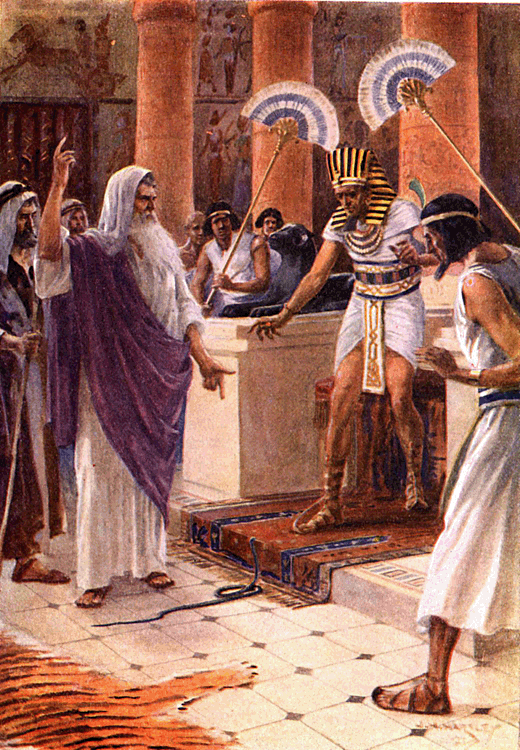
As Moses returned to Egypt to confront Pharaoh, YHVH literally put a sermon in Moses’ mouth to preach to Pharaoh, even though he was stricken with a speech impediment of some sort. To this point, Moses’ life is one of stumbling, failure and seemingly random and serendipitous events. What could YHVH possibly make out of this stew of disparate ingredients? A disgraced member of the Egyptian royal family, a wanted criminal, a lowly shepherd, a failed family marriage and life plus a speech impediment on top of it all. This sounds like a recipe for disaster!
The Bible is teeming with examples like Moses of individuals, who YHVH called to accomplish great things, but who encountered seemingly insurmountable and often life threatening challenges en route to their ultimate, heaven-mandated destiny.
For example, like Moses, although YHVH gave Abraham a divine mission, but stumbled along the way in fulfilling his destiny by trying to make things happen in his own way. The same occurred with both Jacob and Joseph whose lives took a series of unexpected and seemingly disastrous and dead end turns until the seemingly random puzzle pieces fell into place and YHVH’s plan for their lives came to fruition. Similarly, David was anointed as king of Israel many years before became king. In the interim, he spent many years fleeing for his life from those who wanted to kill him. Many more examples could be given.
So Moses’ struggles did not end with his divine encounter, commissioning and empowering at the burning bush. They only begin. As mentioned earlier, shortly thereafter, his marriage likely ended in divorce. His wife of some forty years failed to catch YHVH’s vision for Moses’ life and preferred to remain in the comfort zones of her father’s house in the land of Midian.
Moving on, YHVH had set the stage is set for Israel’s redemption in Exodus 5:22–23. After all, Moses, as either Pharaoh’s adopted grandson or his nephew (depending on whether this was the Pharaoh of Moses’ childhood or his son), had an “in” with the monarch that he could have exploited for the benefit of securing the release of Israel. Yet Moses’ first venture to Pharaoh was a disaster. The plight of the children of Israel deteriorated instead of being improved. Discouraged, Moses almost takes on an accusative tone toward YHVH (Exod 5:22–23). Graciously, YHVH doesn’t rebuke Moses, but as a loving Father encourages him to refocus on his word and the veracity and surety of his promises (Exod 6:2–5).
Despite Moses’ complaints, YHVH graciously encourages Moses upward and onward in spite of his discouraging first attempt at securing the children of Israel’s release from captivity. Is it possible that YHVH allowed immediate success to elude Moses to bring him “to the end of himself” with regard to any tendency he might have had to rely on himself and on his own wisdom to accomplish Elohim’s plans? Probably so, for YHVH tested the faith of Abraham, Isaac, Jacob, Joseph and David in a similar manner.
As YHVH wanted Moses to rely on him alone for Israel’s deliverance, even so YHVH is teaching is modern saints to trust him alone to accomplish his will in our lives, rather than on not relying on our own human abilities. This is how YHVH increases the faith of his servants. For faith “is the substance of things hoped for, the evidence of things not seen” (Heb 11:1). We have to be totally emptied of ourselves before we are ready for the Master’s use. This does not mean that YHVH will not use our natural abilities, talents or what he have gained through life’s experiences, but we must learn to submit all that we have and are to his sovereign will. Moses gave up everything important in his life to serve YHVH: his wife, his family, his career as a successful shepherd, and his connections to Egyptian royalty. He learned to “trust in YHVH, and do good…Trust in YHVH, and do good; so shalt thou dwell in the land, and verily thou shalt be fed. Delight thyself also in YHVH; and he shall give thee the desires of thine heart. Commit thy way unto YHVH; trust also in him; and he shall bring it to pass…Rest in YHVH, and wait patiently for him…The steps of a good man are ordered by YHVH: and he delighteth in his way. Though he fall, he shall not be utterly cast down: for YHVH upholdeth him with his hand” (Ps 37:3–5, 7, 23–24).
By following this upward path of spiritual matriculation and maturation, not only is one’s faith built, but YHVH, not man, gets the glory when success occurs (Jer 9:22–23). There is no truer maxim in the Bible than this: they down is the way up. Yeshua characterized this counterintuitive spiritual path this way:
And a man’s foes shall be they of his own household. He that loveth father or mother more than me is not worthy of me: and he that loveth son or daughter more than me is not worthy of me. And he that taketh not his cross, and followeth after me, is not worthy of me. He that findeth his life shall lose it: and he that loseth his life for my sake shall find it. (Matt 10:36–39)
For whosoever will save his life shall lose it: and whosoever will lose his life for my sake shall find it. (Matt 16:25)
He that loveth his life shall lose it; and he that hateth his life in this world shall keep it unto life eternal. (John 12:25)
David summarized this spiritual journey similarly:
Blessed is the man whose strength is in thee; in whose heart are the ways of them. Who passing through the valley of Baca [or weeping] make it a well; the rain also filleth the pools. They go from strength to strength, every one of them in Zion appeareth before God. (Ps 84:5–7)
They that sow in tears shall reap in joy. He that goeth forth and weepeth, bearing precious seed, shall doubtless come again with rejoicing, bringing his sheaves with him. (Ps 125:5–6)
Or to put these ideas into modern parlance, there is no gain without pain.
When one finally dies to oneself and lets Elohim have his way in his life, it is then that one steps into heaven’s river of life and into the realm of supernatural with its miraculous possibilities endless opportunities.
To this point, at age 80 Moses’ life continues to be one of ongoing struggles and failure.
Moses’ story is one to which most of us can relate. How is this? Because Moses’ road to ultimate success involved multiple setbacks and wrong turns, and he was beset with human foibles and weaknesses. Yet out of the bittersweet ingredients of Moses’ life, out of this confused potpourri and miscellany of human experiences, the Creator of the universe, who ex nihilo created the heavens and the earth, created Moses out of nothing, formed and shaped him, prepared him to prophetically prefigure Yeshua the Messiah, who was to come 1,500 years later. So what is the moral of this story? Like formless, worthless lumps of clay, if we will, in faith, trust and submit our lives into the hands of the Almighty, despite our weaknesses and failures, he can turn each of us into useful vessels that will ultimately bring glory and honor to him—and to ourselves as well.
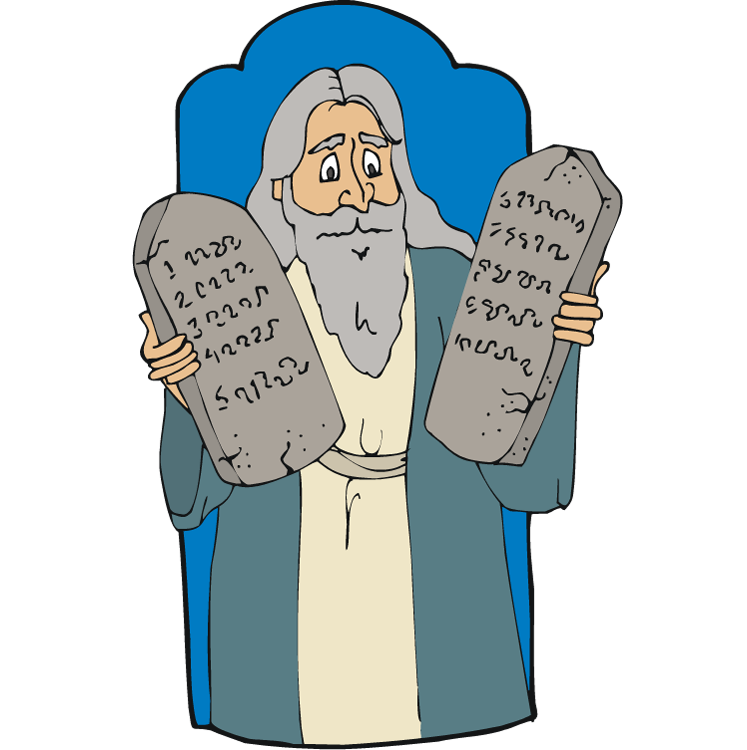
So what was Moses’ ultimate destiny that required him to go through such a refining process? What was the real meaning and ultimate purpose his life? Here is a key takeaway regarding the life of Moses. He was the tool that YHVH would use to unfold heaven’s plan of redemption for the descendents of Abraham—a plan that would eventually expand to encompass all humans. Through Moses, YHVH brings the promises of the Abrahamic Covenant and adds to it the of righteousness as outline in the Mosaic or Sinaitic Covenant, and in the process lays the groundwork for the New Covenant.
How did YHVH encourage and empower Moses? By reminding Moses of and reaffirming his covenantal promises made to the patriarchs, Moses’ forefathers, and by standing by his word which is summarized in his name and reputation. YHVH reaffirmed his covenant promises to Moses using his covenant name YHVH, three times (Exod 6:6, 7, 8). Here are some other examples of how Scripture uses YHVH’s covenant name along with modifying adjectives to describe his promise and ability to meet all our human needs and to fulfill his lofty plans in our lives:
Continue readingNathan’s Commentary on Parashat Shemot Exodus 1:1–6:1

Exodus 1
Exodus 1:7, Increased abundantly…multiplied. This was a partial fulfillment of Jacob’s prophecy in Genesis 48:16 and 19.
Exodus 1:11, Taskmaster…afflict them. The Hebrew word behind taskmaster literally means “gangs of government officials who exacted or levied tribute or taxes from the Israelites by forcing them to work as serfs.” These government bureaucratic goons forced the Israelites, through affliction, into compulsory service involving government works projects. The Egyptians imposed a fascistic and socialistic system upon the Israelites, which was a form of slavery.
Exodus 1:19–21, Midwives said. The righteous, Elohim-fearing midwives (v. 17), chose to obey Elohim rather than to follow government edicts that violated the laws of the Creator. This necessitated them lying to the Egyptians to preserve the lives of the innocent babies. This teaches us that it is not only acceptable to lie in certain circumstances, but it is even commendable in YHVH’s eyes, in order to preserve life (see also Josh 1:17 where Rahab lied to protect the Israelite spies from certain death, and 1 Sam 20:6 where David had Jonathan lie for him to save his life from the murderous Saul). For their work of preserving innocent lives, YHVH blessed the midwives with houses, households or a honorable family lineage (vv. 20–21). In reality, the midwives were pro-life, anti-abortion activists who were involved in civil disobedience for righteous purposes (On the subject of what is biblically righteous civil disobedience, see my notes at Rom 13:1).
Shiphrah…Puah. (See my article at Rom 13:1 on civil disobedience.) Respectively these names mean “brightness; from the root to glisten” and “glitter, brilliance.” One wonders whether these were the midwives’ literal names or symbolic names given to them later by Moses, the writer of books of the Torah, to indicate the beautiful and glorious nature of their work in saving the lives of the Israelite boy babies from abortive deaths at the hands of the evil secular authorities. After all, Moses himself was saved from death in a similar manner. The saving of life from abortion is indicative of the value that the Hebrews and later Christians place on human life because, after all, humans are made in the image of Elohim as the Bible reveals. To kill a human, except in self defense or in accordance with the Torah’s stipulations regarding capital punishment, is an affront to Elohim himself of whom man is a reflection, and who is called to be an imager of the divine. Where as the evolutionary, atheistic and secular humanistic and materialistic philosophy views man simply as an animal or material substance and nothing more, the supernaturalistic, biblical view sees man as being subdivine. These two views are diametrically opposed to each other and project very different philosophies to the people that hold them. Each of these opposing philosophies radiate different ethos and a set of mores to the respective societies and cultures that reflect each of them.
Exodus 2
Exodus 2:16; 3:1 (also 18:1), Priest [Heb. kohen] of Midian. The Hebrew word kohen means “priest, principal officer or chief ruler.” In the days prior to the Levitical priesthood, the Bible considers a father to be the priest of his family (see Exod 19:22, 24). Since Torah mentions three times that Jethro was the priest of Midian, evidently he was more than just a spiritual leader to his family; he was likely also a regional, priestly leader.
Exodus 2:15, Land of Midian. Midian is located in located east of the Sinai and across the Gulf of Aqaba in the modern country of Saudi Arabia (cf. The Works of Philo, “On the Life of Moses,” 1.47; Gal 4:24). The Sinai Peninsula was at times under Egyptian hegemonic control, while Midian was outside of Egyptian control making it a safe place of exile for Moses out of the reach of Egyptian legal justice. There is biblical evidence that points to the fact that this same land of Midian was also where Mount Sinai was located and was in Arabia (e.g., Gal 4:25), and not the traditional sight in the Sinai Peninsula where St. Catharine’s Monastery is now located.
Exodus 2:18, Reuel. Moses’ father-in-law had several names including Jethro (Exod 3:1) and Hobab (Num 10:29). Jethro was a descendant of Abraham through Midian, his son by Keturah (Gen 25:1–2). It’s likely that Jethro was knowledgeable about Abraham’s Yehovist faith and thus was able to train Moses, who for all practical purposes, was an Egyptian, was raised in the Egyptian religion and culture and would have known little about YHVH and his Torah-law. As such, YHVH strategically placed Moses in a spiritual boot camp for forty years where he not only learned to manage physical sheep in preparation for his leading the children of Israel, but he was trained by a godly priest eventually to become the Levitical priest over Israel.
Exodus 2:22, Gershom. A sad piece of Bible trivia is that some of Moses’ descendants didn’t follow in his righteous steps. Gershom’s sons became idol worshipers (Judg 18:30–31). Many of the children of righteous men in the Bible didn’t follow in the footsteps of their fathers in remaining faithful to Elohim.
Examples rotten apple children falling from good fruit trees include Isaac (Esau), Aaron (Nadab and Abihu), Samuel’s sons (1 Sam 8:1–3), and some of David’s children as well as the children of many of the other righteous kings of Judah.
What’s more, the Bible tells us nothing about the spiritual status of the sons of any of the prophets or apostles. Whether they remained faithful to YHVH or not, we don’t know. If they had been notable in their service to YHVH, it seems that Scripture would have recorded this notable fact.
One thing seems certain. Most of the high visibility servants of YHVH were solitary figures. Little if anything is known about their spouses, families or children, who, in general, seemed to play no major role in the key figure’s ministry activities.
Interestingly, there are also several examples of righteous sons coming from unrighteous fathers and vice versa. This is the case with several of the kings of Judah.
All this is to say that just because a child was raised well in a godly family doesn’t guarantee they will continue to serve Elohim and walk in righteousness. Conversely, just because a child was raised in an ungodly, even wicked family, doesn’t mean they will become wicked and ungodly.
Salvation is an individual matter. YHVH calls and chooses whom he will, and it’s up to the individual to respond to that calling. Some will respond, but most will not. As Yeshua said, many are called, but few are chosen (Matt 22:14), the spiritual gate is wide that leads down the wrong path, while the gate that leads down the straight path to salvation and eventually into the kingdom of Elohim is narrow (Matt 7:13). One thing is certain though. The Father’s arms are open wide for his prodigal children to return to him, and so should ours (Luke 11:15–31).
Gershom and Eliezer. Gershom was Moses firstborn son (Exod 2:22; 1 Chron 26:24). Moreover, the Scriptures records what happened to Gershom later in his life. In the Book of Judges (Judg 18:30) we find a reference to a “Manasseh” (in the KJV and NKJV), but according to the LXX and Latin Vulgate this is an erroneous translation. Instead, this Bible text should say “Moses” and not Manasseh (as the NKJV notes in the margin). The Masoretic rabbinates later changed Mosheh to Manasheh to hide the fact that Moses’ son was an idolater and idol maker. The NIV correctly states Moses, not Manasseh, and explains why the Jews changed Manasseh in its footnotes (see the NIV Study Bible). Elsewhere (1 Chron 23:15) states that both Gershom and Eliezer where Moses’ sons.
Exodus 3
Exodus 3:1, Tending the flock. Moses spent forty years in the wilderness of Midian tending the flocks of Jethro, his father-in-law. After this phase of his life, YHVH called and commissioned Moses to lead the children of Israel out of Egypt and then to shepherd them through the wilderness en route to the Promised Land. This was the very same wilderness where Moses had shepherded Jethro’s sheep for forty years, so he knew the area’s geography well. Moses’ job as a physical shepherd prepared him for the next phase of his life—his ministry as a spiritual shepherd.
Often YHVH chooses individuals as his servants based on their vocational background, which provides training for the spiritual ministry to which he then calls them. For example, David was a shepherd before he became the king over Israel. Amos was a picker of fruit and a shepherd who called the nation of Israel back to return to YHVH by producing good spiritual fruit and to come back into a relationship with their Creator, who was Israel’s true spiritual Shepherd. John the Baptist was a priest calling the Jews to repent of sin and to become a holy nation. Yeshua was a carpenter before he became a builder of the spiritual house of Israel (Heb 3:3–6; 1 Pet 2:5). Several of Yeshua’s disciples were commercial fishermen before becoming “fishers of men” (Matt 4:19) or apostolic evangelists. Paul was a tent maker helping to raise up the fallen tabernacle of David (Acts 15:16). Sometimes our physical vocations may be an indicator of and preparatory to our eventual spiritual calling.
Being a shepherd of physical sheep is a most suitable profession to prepare one for tending YHVH’s spiritual sheep. A shepherd has to put the needs, comfort, care and protection of the sheep above his own needs and wants. This is one reason why the Scriptures refer to those who care for and protect YHVH’s spiritual sheep as shepherds or pastors.
There are many similarities between physical and spiritual shepherds, and physical and spiritual sheep. Unless one has been a physical shepherd and cared for physical sheep or parented children, it is unlikely that these reasons will be readily apparent. This is why being a parent is a one of the qualifications for being an elder or deacon in the church (1 Tim 3:2, 4, 12; Tit 1:6).
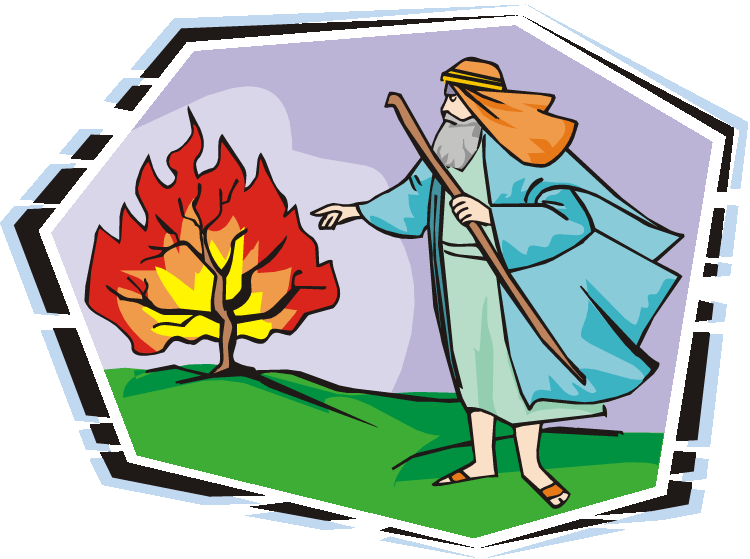
Exodus 3:5, Take your sandals off. In the Orient, it is common to take off one’s shoes before entering a house, since people typically would sit on a mat or a rug (as opposed to a chair). To keep these mats from getting soiled by dirt, sandals were left outside. The idea of defilement from the shoes led to the custom of removing shoes when entering sacred place, which the Moslems practice to this day when entering a mosque. It is because of this, that the Messenger of YHVH asked Moses to take off his sandals at the burning bush (Manners and Customs, pp. 74–75), since this spot, at that moment, represented the dwelling place of YHVH.
Moreover, the removal of one’s sandals was an act of submissive worship to YHVH. When coming into the Presence of Elohim, Moses removed his sandals (as did Joshua, Josh 5:15), and the priests ministered barefoot in the tabernacle. Not only this, the priests covered their genitals when ministering in YHVH’s Presence (Exod 28:42), or when ascending to the altar of sacrifice (Exod 20:26). Not only was this a modesty issue to prevent the Israelites from descending into the perverse sexual religious rites of the surrounding heathen nations, but this, as with the removal of shoes, was a sign of reverence. In the world of the Bible, genitals symbolized power over children and sandals represented power over land. It was considered prideful and irreverent to display signs of reproductive ability and land ownership before YHVH (Social World of Ancient Israel, p. 10, by Matthews and Benjamin).
Holy ground. Holy is the Hebrew word qodesh meaning “sacredness or separateness.” That which is qodesh is the opposite of that which is common, profane, worldly, polluted or vile. The biblical record is clear: only YHVH can make something holy either by his presence or because he declares something to be qodesh. Men have no authority to call something holy unless YHVH has declared it so. Thus the idea of holy water, the Holy See, the holy mother of God, the holy rosary, the holy Koran and many other things that men have declared to be holy are not technically holy by biblical definition and according to biblical criteria. Several things that the YHVH calls holy in the Bible that most Christians ignore include are YHVH’s feasts and weekly Sabbath (Exod 12:16; 16:23; Lev 23:2), YHVH’s people or the nation of Israel when they obey him (Exod 19:6; Deut 26:19), the Tabernacle of Moses (Exod 26:33), the anointing oil (Exod 20:25), where YHVH’s holy people dwell when they obey him (Deut 23:14), YHVH’s Hebrew name which most Christians do not even know much less use (1 Chron 16:35; Ps 103:1), YHVH’s covenants with his people (Luke 1:72), Yeshua the Messiah (Acts 4:27, 30), the Scriptures or Bible (Rom 1:2) and YHVH’s Torah-law (Rom 7:12). How many of the things in this list does the mainstream church either ignore or reject as being holy, and how many things does the church call holy that YHVH in his Word does not call holy? Let us recall the words of Yeshua when rebuking the religionists of his day for all of their man-made traditions that ignored the Word of Elohim. “And he said unto them, Full well ye reject the commandment of Elohim, that ye may keep your own tradition…Making the word of Elohim of none effect through your tradition, which ye have delivered: and many such like things do ye” (Mark 7:9, 13). May we endeavor to elevate in our lives and thinking those things that YHVH as declared to be holy and reject as being holy those things that YHVH has not called holy.
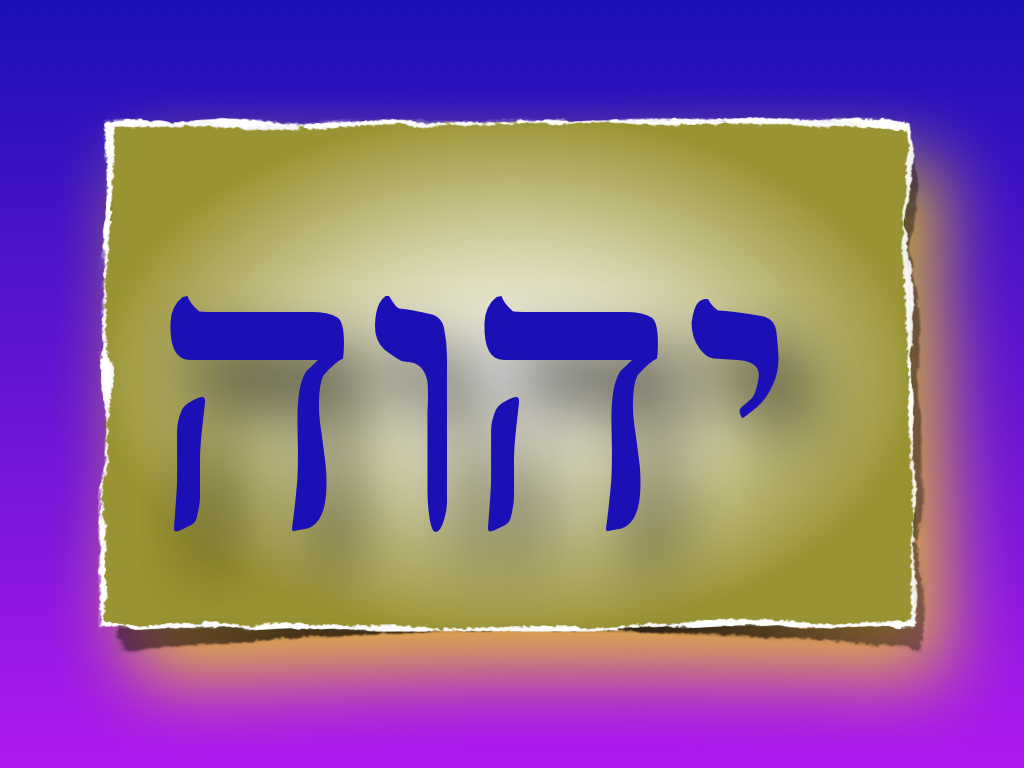
Exodus 3:14–15, I AM THAT I AM. The name YHVH is Elohim’s memorial name forever. It reflects the fact that he is; that he is undefinable in human terms, and that he has always existed. This is the name by which he is to be remembered and not forgotten as is the case with the modern rabbinic Jews which have a non-biblical doctrine forbidding the use of the Hebrew names of Deity. Exodus 3:14 and 15 read as follows:
14 And Elohim said unto Moses, I AM THAT I AM (EHYEH ASHER EHYEH הוהא רשא הוהא): and he said, Thus shalt thou say unto the children of Israel, I AM (EHYEH הוהא) hath sent me unto you. 15 And Elohim said moreover unto Moses, Thus shalt thou say unto the children of Israel, YHVH (הוהי) the Elohim of your fathers, the Elohim of Abraham, the Elohim of Isaac, and the Elohim of Jacob, hath sent me unto you: this is my name [Heb. shem] for ever, and this is my memorial [Heb. zeker] unto all generations.
Here are some examples of how various Bible versions translate the name of YHVH:
- I Am That I Am (KJV)
- I Am Who I Am (NAS, NIV, NKJV
- I Am That Which I Am (YLT)
- I Shall Be As I Shall Be (The ArtScroll Stone Edition Tanach)
- I Will Be What I Will Be (The Gutnick Edition Chumash, JPS)
- I Will Be There Howsoever I Will Be There (The Schocken Bible)
- I Am the Being (LXX, Brenton)
Exodus 3:15 states that YHVH is Elohim’s memorial name that Moses was to use when referring to I AM THAT I AM. I AM THAT I AM is Elohim’s actual name and what he calls himself, but men are to refer to him as YHVH, which means “the existing one, the one who is, the one who will be.” Both the former and latter are forms of the Hebrew verb hayah meaning “to be.” YHVH instructed that YHVH was to be his memorial name forever. In other words, humans were to use YHVH to remember him by. There is no indication anywhere in the Bible that it was YHVH’s intention that his name was to be forgotten or hidden through euphemization. The word memorial in Exodus 3:15 is the Hebrew word zeker and means “memorial, remembrance or memory.” There is nothing here to indicate that his name was to be forgotten.
It must be noted here that we don’t refer to YHVH as I AM, for were we to do so it would be necessary to say “I AM,” and in all reality, we aren’t the I Am, but YHVH is the I AM. Just so there is no confusion when communicating YHVH’s name in every day speech, the Bible uses, not the Hebrew ehyeh meaning “I AM,” but the form of the verb which means “He Is.” In this way, every time we say his name, we are glorifying him, and not inadvertently glorifying ourselves.
Instead of getting all vexed and confused on how exactly to pronounce Elohim’s name, let us just learn to love, worship and obey YHVH! These are the weightier matters of the Torah (Matt 23:23; 1 Cor 13:1–13). The last thing that YHVH wants is for his children to cause division and strife over how to pronounce his name!
The name YHVH, referred to as the tetragrammaton, is the personal name of the Creator and occurs some 6800 times in the Tanakh. The exact pronunciation of this name has been lost down through the ages, and there is debate among well-meaning individuals on how to pronounce this four consonant Hebrew name. Because there are no vowels in this name, scholars can only speculate and make educated guesses about what the vowels between the consonants should be. No one knows for sure how to vocalize the consonants Y-H-V-H. The best scholarly opinions on this subject are just that—educated guesses.
Instead of getting all worked up about how exactly to pronounce Elohim’s name, let us just love, worship and obey YHVH! Again, these are the weightier matters of the Torah (Matt 23:23; 1 Cor 13:1–13). This is the distinguishing mark a true disciple of Yeshua (John 13:35), and what will separate the goats from the sheep (Matt 25:37–44)—not how we pronounce YHVH’s name!
Exodus 3:2; 13:21; 14:20
The Burning Bush and the Messenger of YHVH
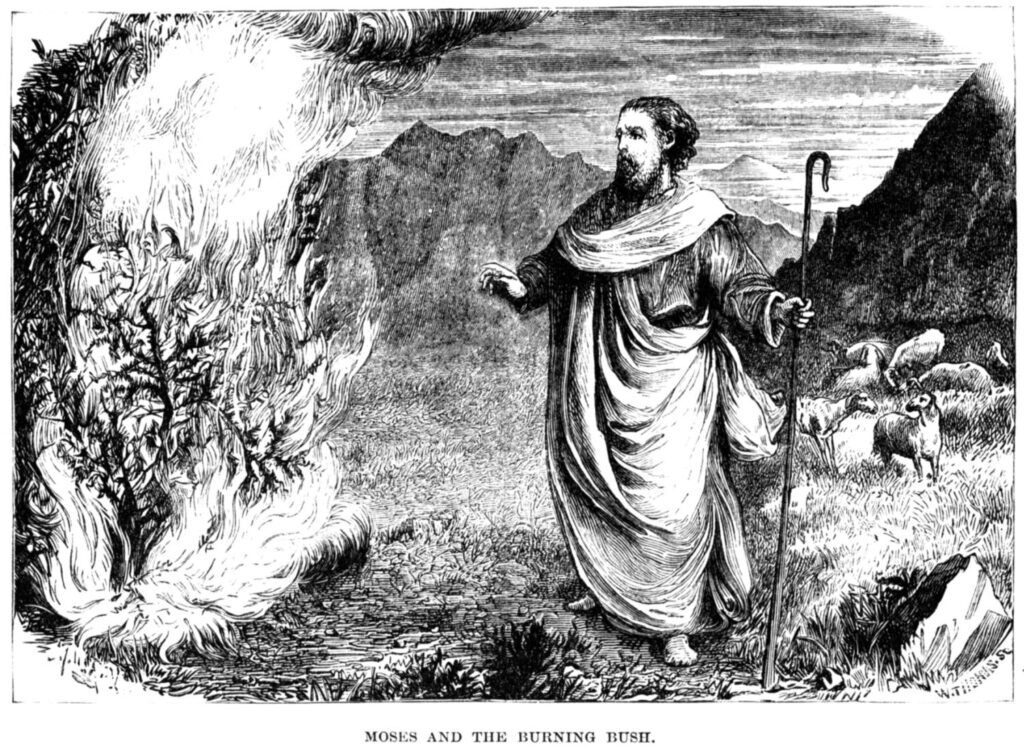
From the first to the last book of the Old Testament, an enigmatic figure keeps making an appearance onto the stage of Israel’s long history—usually at critical moments. Scripture calls this divine entity “the angel of the LORD/YHVH.” The appearance of this unnamed personage was not infrequent. He drops in on Israelites numerous times and he is mentioned fifty times. Was he a single divine entity or were there several “angels of YHVH?” Was he a literal, stereotypical angel or something more? We will explore this question.
One of his epic appearances occurred prior to Moses leading the children of Israel out of Egypt at a burning bush that refused to be consumed by fire. Such a spectacle would render any passerby immobile and gawking with mouth agape. It was here that the shepherd Moses not only came face to face with the Angel of YHVH, but received some secret intelligence along with a divine calling. Let’s dive in and explore this subject.
In Exodus 13:21 we read,
And YHVH went before them by day in a pillar of a cloud, to lead them the way; and by night in a pillar of fire, to give them light; to go by day and night.
Then in Exodus 14:19 it is written,
And the angel of Elohim, which went before the camp of Israel, removed and went behind them; and the pillar of the cloud went from before their face, and stood behind them.
Who was this “Angel” of Elohim (elsewhere he is called “the Angel of YHVH”)? Angel is an unfortunate translation. The Hebrew word for angel is malak/ךאלמ and simply means “a heavenly or a human messenger.”Prophetically this word can refer to human messengers such as the one coming in the spirit of Elijah prior to Messiah’s coming, as well as to the Messiah himself (as in “the Messenger/Malak of the covenant” in Malachi 3:1). Then in Genesis 32:22–30 Jacob wrestles with a man Scripture identifies as the “Malak of YHVH” (Hos 12:3–5), and whom Jacob also called Elohim (verse 30). This same Individual redeemed Jacob (Gen 48:18), and is identified with “the Malak of Elohim…the Elohim of Bethel” (Gen 31:11 and 13). He again appeared to Moses at the burning bush (Exod 3:2). After this, we find him leading children of Israel through the wilderness. Again who is this personage of divine origination?
Stephen in Acts 7:37–39 identifies the Messiah (i.e., “that Prophet” Moses mentioned in Deut 18:15) with this same “Angel” or Heavenly Messenger which spoke to the children of Israel from Mount Sinai and who gave them the “living oracles,” who the Israelites later rejected for pagan gods. Paul elsewhere said of that same Personage that the Israelites did “all drink the same spiritual drink: for they drank of that spiritual Rock that followed them: and that Rock was Messiah/Christ” (1 Cor 10:4).
Moreover, Yeshua declared to the Jews that he was the I AM, YHVH or Messenger of YHVH of the burning bush incident who spoke to Moses (Exod 3:2, 14). The Jews knew that Yeshua was declaring himself to be YHVH, which is why they picked up stones to kill him, for they considered such a declaration to be a blasphemous (John 8:59). A human calling himself God? Scandalous to be sure! Yeshua went on to state that the Israelites never heard the voice of the YHVH the Father, nor saw his face at anytime (John 5:37). This would include the time period of the children of Israel. If it wasn’t the Father who spoke to the Israelites, then who did? That leaves only one other person—the Word of Elohim that was with Elohim and who would latter become flesh and dwell with men as Yeshua the Messiah (John 1:14)—God in the flesh (Phil 2:5–11; 2 Cor 4:4; Col 1:15–16; 1 Tim 3:16; Tit 2:13; Heb 1:8).
Concerning the pillar of fire that led the Israelites through the wilderness, we see that it gave them light. Light in the Scriptures is often a biblical a metaphor for the Torah (Pss 19:8; 119:105; Prov 6:23). We know that Yeshua the Messiah is the Light of the World (John 8:12), and that he is the Word of Elohim in living form (personified, John 1:1, 14).
Furthermore, in Nehemiah 9:12 and 19 we read,
Moreover thou leddest them in the day by a cloudy pillar; and in the night by a pillar of fire, to give them light in the way wherein they should go…Yet thou in thy manifold mercies forsookest them not in the wilderness: the pillar of the cloud departed not from them by day, to lead them in the way; neither the pillar of fire by night, to show them light, and the way wherein they should go. (emphasis added)
While light in the Scriptures often allegorically refers to the Torah, the term the way (Heb. derek,ךרד) can be a metaphor for “the way of Torah righteousness.” The Scriptures uses the term way(s)/derek as a reference to the Torah in the following passages (and many more as well):
Therefore thou shalt keep the commandments of YHVH thy Elohim, to walk in his ways, and to fear him. (Deut 8:6)
And now, Israel, what doth YHVH thy Elohim require of thee, but to fear YHVH thy Elohim, to walk in all his ways, and to love him, and to serve YHVH thy Elohim with all thy heart and with all thy soul. (Deut 10:12)
For if ye shall diligently keep all these [Torah] commandments which I command you, to do them, to love YHVH your Elohim, to walk in all his ways, and to cleave unto him. (Deut 11:22)
And a curse, if ye will not obey the [Torah] commandments of YHVH your Elohim, but turn aside out of the way which I command you this day, to go after other gods, which ye have not known. (Deut 11:28)
I have chosen the way of [Torah] truth: thy judgments have I laid before me. (Ps 119:30)
I will run the way of thy [Torah] commandments, when thou shalt enlarge my heart. (Ps 119:32)
Teach me, YHVH, the way of thy statutes; and I shall keep it unto the end. (Ps 119:33)
The Messenger of Elohim from within the pillar of fire not only directed the Israelites in the way they should go (Exod 13:21; Deut 1:33), but the Messenger spoke to Moses from within the pillar as well,
And it came to pass, as Moses entered into the tabernacle, the cloudy pillar descended, and stood at the door of the tabernacle, and YHVH talked with Moses. And all the people saw the cloudy pillar stand at the tabernacle door: and all the people rose up and worshipped, every man in his tent door. And YHVH spake unto Moses face to face, as a man speaketh unto his friend. And he turned again into the camp: but his servant Joshua, the son of Nun, a young man, departed not out of the tabernacle. (Exod 33:9–11)
And YHVH descended in the cloud, and stood with him there, and proclaimed the name of YHVH. (Exod 34:5)
And YHVH came down in a cloud, and spake unto him, and took of the spirit that was upon him, and gave it unto the seventy elders: and it came to pass, that, when the spirit rested upon them, they prophesied, and did not cease. (Num 11:25)
And YHVH appeared in the tabernacle in a pillar of a cloud: and the pillar of the cloud stood over the door of the tabernacle. And YHVH said unto Moses…(Deut 31:15–16a)
What can we gather from all the above texts pertaining to the Messenger of YHVH (improperly translated “Angel” of the LORD)? This same Divine Messenger thundered out the words of the Written Torah from Mount Sinai, he gave divine revelation to Moses out of the pillar of fire, he lit the path of the Israelites through the wilderness with both physical and spiritual light. He led them in the physical and spiritual way they should go as they were trekking through the wilderness. This fiery Messenger who gave both physical and spiritual light to the Israelites is nothing else but another manifestation of the complete, supernal light which shone upon this earth during the first three days of creation—a light which will once again shine at the end of days in the New Jerusalem replacing the physical sun (Rev 21:23; 22:5). This divine Torah-light was concealed after day three of creation, but was hidden in the Written Torah and in the Person of Yeshua the Messiah, the Living Torah. This same Light was none other than the fiery Messenger who led the Israelites through the wilderness, and who became the Torah-Word of Elohim made flesh. Yeshua was torch bearer of Truth to the world in the first-century and to this day. As the fiery Messenger led the Israelites out of the land of Egypt and out of the house of bondage through the wilderness, this same Torah light, concealed to most, but revealed to those who have eyes to see, is still leading and guiding us through the wilderness experience of your life as you are heading to the Promised Land of the kingdom of Elohim in the New Jerusalem.
This same “Angel” or Messenger from heaven who was the second person of the Godhead and who would become Yeshua the Messiah appeared numerous other times to godly Old Testament saints including Abraham, Hagar, Jacob, Joshua, Samson’s parents, David, Elijah, Zechariah and even to Balaam and his donkey!
Exodus 4
Exodus 4:3, Serpent. Serpents and staffs were powerful symbols and are biblical metaphors for evil spiritual entities. What lessons can we learn from Moses’ power encounter with Pharaoh’s magicians?
A serpent is often a biblical metaphor for Satan or demonic powers (e.g., Gen 3:1; Luke 10:19 cp. 9:1 and Mark 16:18; Rev 12:9; 20:2). Pharaoh, as ruler over Egypt (a metaphor for this world), was a symbol of Satan who is the ruler of this world. A rod or a staff can be a biblical metaphor for power, authority, rulership or judgment (Gen 38:18; Exod 4:17, 20; Ps 2:9; Rev 19:15).
In this verse, YHVH was giving Moses authority over the powers of Satan and his forces. When Moses cast down his rod, it became a serpent, and Moses was immediately able to assume control over the serpent at will for the purposes of advancing YHVH’s spiritual kingdom. This seems to have been YHVH’s way of showing Moses that he was giving him supernatural authority over Pharaoh (Satan) in fulfilling his divine commission to liberate the children of Israel.
The staff changing into a serpent reminds us of the authority that Yeshua gave his disciples to cast out demons and to heal diseases (Luke 9:1; 10:19; Mark 16:15–18).
Furthermore, later on YHVH instructed Moses to construct a bronze serpent and place it on a pole, which when the Israelites looked on it, they were healed of the bites of the fiery serpents (Num 21:8). Here the serpent represents sin, since it is Satan the serpent who introduced sin to man in the Garden of Eden, which resulting in “the fall” of man and brought upon each of the curse of death because of sin. Yeshua took that curse on himself when he was lifted up on the cross of judgment even as Moses lifted up the bronze serpent in the wilderness (John 3:14). As a result, Yeshua defeated Satan the serpent at the cross (Col 2:15; Gen 3:15; Rom 16:20), even as Moses’ serpent defeated the serpents of the satanic Pharaoh’s magicians. Likewise, we as the servants of Yeshua the Messiah have the same authority over demonic powers (Luke 9:1; 10:19; Mark 16:15–18) as Moses did when we act on alignment with the will of YHVH.
Exodus 4:6, Put your hand in your bosom. This second sign was to demonstrate Moses’ authority over sickness, disease and sin. Authority over sickness by healing the sick was a key component of Yeshua’s ministry as well. Leprosy is another biblical metaphor for sin; both are highly contagious (Lev 13–14). Only Yeshua’s death on the cross can heal men of this spiritual disease as the Torah’s cleansing ritual for leprosy metaphorically symbolizes (Lev 14:4–7).
Exodus 4:9, Blood on the dry land. This was the third sign or witness that YHVH gave Moses as confirmation of his divine commission. The Scriptures instruct us to confirm a matter in the mouth of two or three witnesses (2 Cor 13:1). The Nile River was like a god to the Egyptians because it was the source of much of Egypt’s economic wealth, since it watered that country’s crops and made that nation rich and powerful. Bringing the judgment of death upon the Nile’s waters was a judgment against one of Egypt’s gods and the source of its economic might.
Exodus 4:3–9, A summary. The three signs that YHVH had Moses perform to Pharaoh were merely warning shots against a wicked and unrepentant nation instructing them to submit to YHVH’s will. YHVH was telling the Egyptians that if they refused to obey his prophet, he would unleash demonic spirits, and plagues of sickness and economic destruction on that nation. These are YHVH’s judgments against a nation that refuses to repent. Of course, Egypt refused to obey YHVH, and so he not only brought these judgments against Egypt, but much more, such that Egypt was totally destroyed. The same fate befalls end times satanic and antichrist worldwide system that the Book of Revelation calls Mystery Babylon the Great. As YHVH used Mosess to destroy Egypt, so he will use Yeshua, his Son, to destroy Babylon the Great.
Exodus 4:10, Slow of speech. This doesn’t necessarily mean that Moses had a speech impediment, for Stephen tells us that he was “mighty in words” (Acts 7:22). Perhaps, with practice, Moses became might in words. Moreover, Moses struggled to speak Hebrew fluently, since he was raised speaking the Egyptian language. Likely Moses spoke Egyptian fluently and without an accent having been raised in an Egyptian home. His inability to speak publicly seems to be emphasized by the fact that he used Aaron as his spokesman even to Pharaoh, who would have spoken Egyptian, a language in which Moses would have been fluent.
Exodus 4:20, Sons. The names of Moses were Gershom (Exod 2:22) and Eliezer (1 Chron 23:15).
Exodus 4:21, I will harden Pharaoh’s heart. There is an interesting interplay in the Torah’s narrative regarding the a condition of Pharaoh’s heart. At times, Scripture records that Pharaoh hardened his own heart (Exod 7:23; 8:15, 32; 9:34), and at other time times, we read that Elohim hardened Pharaoh’s heart (Exod 7:3, 13, 22; 8:19; 9:7, 12, 35; 10:1, 20, 27; 11:10; 14:4, 5, 8). Who is in control of Pharaoh’s heart? Pharaoh or Elohim? Initially, it appears that Pharaoh had control over his heart disposition, but as time progressed, his heart became totally sold out to rebellion against YHVH. When he crossed this line, it was a point of no return for Pharaoh, and so YHVH simply used him to accomplish his purposes. Paul discusses the sovereignty of Elohim with regard to the free will of men in Romans 9:15–18. YHVH can save whom he wishes (Mark 10:26–27 cp. Rom 9:18) and condemn whom wishes (Rom 9:18, 22). It is true that YHVH loves the whole world (John 3:16) and is not willing that any should perish, but desires all to be saved (2 Pet 3:9). At the same time, there are people who refuse Elohim’s love and choose to remain in their sinful rebellion. These are the wicked that he has reserved for the day of his judgment (Job 21:30; Prov 16:4; Rom 9:22; Jude 4). However, YHVH sets before humans two paths: life and death. All have the freedom and ability to choose the path of righteousness, leading to life, or wickedness leading to death (Deut 30:15–20). When Pharaoh chose the path of wickedness and death and hardened his heart to go in that direction, YHVH simply complied with the dictates of the king’s heart and used him to accomplish his sovereign and divine purposes. In the Exodus record relating to the condition of Pharaoh’s heart, we see that initially sometimes Pharaoh hardened his own heart, and sometimes it was YHVH who did it. In the end, however, it was YHVH who exclusively hardened Pharaoh’s heart. This is because by this time, Pharaoh had already predetermined to harden his heart, and YHVH was simply manipulating Pharaoh according to his sovereign purposes. YHVH was no way violating Pharaoh’s freewill or freedom of choice, but was merely acting in accordance with the choices Pharaoh and already made.
Exodus 4:22, Israel, my son, my firstborn. The nation of Israel was YHVH’s firstborn son among the nations of the world. As such, YHVH through Moses was first declaring the birth of Israel as a nation, and secondly, that Israel was preeminent among nations in YHVH’s eyes. This was an in-your-face declaration to Pharaoh, sovereign of the world’s mightiest nation at the time, to move over, for a greater nation was on the rise that would replace Egypt. This was a bold move on Moses’ part, and one that no man in his right mind could make unless he were either full of ultra-arrogance and delusions of grandeur, or else he truly had been commissioned, authorized and sent by the Creator of the universe on a divine mission. Had Moses not had YHVH’s backing, Pharaoh could have pronounced a death sentence on Moses then and there. Not only this, Moses, as the leader of the nation of Israel, was declaring spiritual war on Pharaoh and Egypt in the name of YHVH Elohim when he gave him the ultimatum to free the Israelites or face YHVH’s judgment.
Exodus 4:25, Cut off the foreskin. Presumably, Moses would have already been circumcised by his mother when he was a baby, thus he was consecrated in YHVH’s eyes. However, for Moses to continue forward in his ministry call, it was necessary for him to consecrate his minor sons through the ritual act of circumcision in accordance with the Abrahamic Covenant. What is the lesson in this for us today? Simply this. A servant of YHVH must get his own spiritual house in order before pointing an accusing finger at someone else. If he doesn’t, he will be revealed as an arrogant, two-faced hypocrite, thus bringing disrepute to YHVH as a laughing stock of the devil resulting in hindering the advancement of his kingdom. YHVH required this of Moses before confronting Pharaoh accusingly.
The cutting away of the flesh of the foreskin symbolically signifies the death of the carnal man from following idols of the flesh and dying to its lusts. The foreskin being at the forefront or the leading edge of a man’s anatomy is a graphic illustration of cutting away the filthy flesh and going forward spiritually in a clean, righteous and sanctified state. Moreover, one’s willingness to undergo the procedure of circumcision indicates a willingness go forward as the Creator’s spiritual bondservant.
Zipporah. Why did Moses expect Zipporah to circumcise his sons? This is a question that has puzzled many Bible students over the years. To answer this question, we must understand the role of the mother in ancient Near Eastern culture during Bible times. The mother was the sole manager of the household. Because ancient Israel was a subsistence economy, a household’s resources had to be managed carefully, and this was the woman’s responsibility. She directed the preservation and storage of food and allotted food rations to each family member to ensure that everyone in the household was fed and that the food lasted until the next harvest cycle. “In the world of ancient Israel, a man’s home was his wife’s castle She had the domestic authority which he did not” (Social World of Ancient Israel, p. 25, by Matthews and Benjamin). The mother’s dominant role over the household including the children may explains why Moses expected Zipporah to circumcise his two sons (Exod 4:25–26).
For the mother, childbearing and teaching children were synonymous roles. The Book of Proverbs shows the dual role of the mother (Prov 1:8; 6:20; 23:22–25; 31:1–9).
A mother’s intimate bond to her children not only lasted through pregnancy and infancy, but also through the weaning process, which often didn’t occur until the child was four years of age. After teaching them how to walk, talk and dress themselves, she taught the child the domestic skills of gardening, cooking herding, weaving and making pottery (Social World of Ancient Israel, p. 28, by Matthews and Benjamin).
Exodus 4:31, They bowed their heads. When YHVH intervenes supernaturally on behalf of his people in a convincing and powerful manner to deliver them in their affliction, what more can man do but to bow their heads in worship?
Exodus 5
Exodus 5:1, Feast. Feast is the Hebrew word chagag meaning “to hold a feast, hold a festival, make pilgrimage, keep a pilgrim-feast, celebrate, dance, stagger.” This a general term referring to one of the biblical pilgrimage festivals (i.e. Passover/Unleavened Bread, Feast of Weeks and Feast of Tabernacles). Specifically, this was referring to the Feast of Unleavened Bread, which ended up being the night when the children of Israel existed Egypt after just having celebrated the Passover.
Exodus 5:14–20, Divide and conquer. This is the strategy of Satan to defeat his enemies. This is what Pharaoh (a biblical metaphor for Satan) did to the Israelites. He set the people against their leaders and vice versa, and ultimately against Elohim.
Exodus 5:21–23, And they said to them. When YHVH commissions his servants, often they encounter obstacles in executing his orders. This serves to humble YHVH’s servants, so they will be less likely to rely on their own carnal prowess, schemes and abilities to fulfill his commission for them and thus to become more reliant on YHVH to help them to overcome the obstacles. Furthermore, obstacles are a test of the faith of YHVH’s servants. Will they trust him and rely on him to help them overcome the obstacles, or will they, in fear and discouragement, give up defeated? This is part of the refinement and honing process that YHVH’s chosen vessel go through to hone their leadership skills, so that they will be righteous and godly leaders.
Exodus 5:22, Now you shall see. YHVH was about to set the enemy’s strategy of divide and conquer (see notes at vv. 14–20) on its head. YHVH is in charge and will be glorified, and his people will come out victorious if they keep their eyes on him and follow his instructions (Rom 8:28–29).
Welcome to the Book of Exodus!
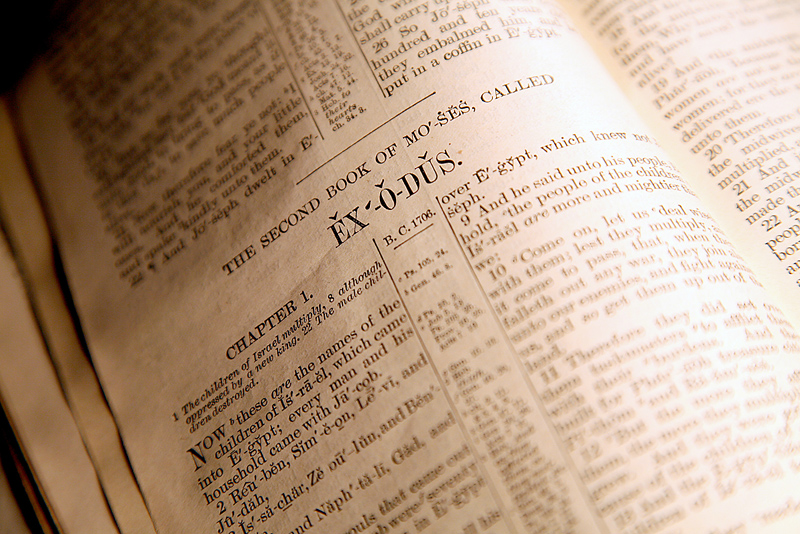
Overview of the Book of Exodus (Main Themes)
Exodus is the book whose principle theme is redemption—Israel’s deliverance from Egypt. Here we learn how YHVH saves his people and we are shown that his people are redeemed in order to worship him. The traditional Jewish name for Exodus is the Hebrew word Shemot meaning “names.” This is based on the fact that this word is the first noun that appears in the first verse in Exodus. The Jews name all the books of the Torah or Pentateuch based on the first verb or noun that occurs at the beginning of each book.
The Theme of Redemption
The first major theme in Exodus is idea of redemption of YHVH’s people from enslavement in Egypt. Egypt is a biblical symbolic metaphor for the world, the flesh and the devil. This speaks to the larger and overall biblical theme of redemption or salvation of those people who put their trust in YHVH Elohim, who promises to deliver them from all the influences of evil. The aspects of divine redemption are delineated in Exodus chapter six.
Say, therefore, to the sons of Israel, “I am YHVH, and I will bring you out from under the burdens of the Egyptians, and I will deliver you from their bondage. I will also redeem you with an outstretched arm and with great judgments. Then I will take you for My people, and I will be your Elohim; and you shall know that I am YHVH your Elohim, who brought you out from under the burdens of the Egyptians. I will bring you to the land which I swore to give to Abraham, Isaac, and Jacob, and I will give it to you for a possession; I am YHVH.” (Exod 6:6–8, emphasis added)
Worshipping and Obeying YHVH Elohim
Once YHVH has delivered and redeemed those who trust him from enslavement to the evil influences of “Egypt,” if people are to stay delivered from the powers of evil or the dark kingdom of Satan, then people must be will to enter the kingdom of Eohim, which involves obeying and worshipping YHVH Elohim, who delivered them from death and spiritual darkness into life and spiritual lght.
And he said, “Certainly I will be with you, and this shall be a token unto you, that I have sent you, when you have brought forth the people out of Egypt, you shall serve Elohim upon this mountain.” (Exod 3:12, emphasis added)
And I say unto you, “Let my son go, that he may serve me, and if you refuse to let him go, behold, I will slay your son, even your firstborn.” (Exod 4:23, emphasis added)
And you shall say unto him, “YHVH Elohim of the Hebrews has sent me to you, saying, ‘Let my people go, that they may serve me in the wilderness, and, behold, until now you would not hear.’” (Exod 7:16, emphasis added)
The Basic Outline of Exodus
Chapters 1–6 show us the need for redemption.
Chapters 7–11 show us the power or might of the Redeemer as he pours out the ten plagues on Egypt as symbolic of his divine judgment against this world in general and man’s sin in particular.
Chapters 12–18 show us the character of redemption, and how sinful man is redeemed by blood of a lamb and is emancipated from heaven’s judgment against the sins of the world by the blood of an innocent life, which prophetically points to Yeshua the Redeemer, who would be the Lamb of Elohim to redeem man from sin.
Chapters 19–24 teaches us the duty of the redeemed to obey and worship YHVH Elohim.
Chapters 25–40 gives further instructions on how to be redeemed and how to stay redeemed. Provisions are also made for the failures of the redeemed to be restored back into a right relationship with their Creator when they fall spiritually.
The Prophetic Metaphors in Exodus
Egypt is a biblical metaphor for the world, the place of sin and bondage where one is held captive before being delivered or redeemed by the power of YHVH and the blood of Yeshua, the Lamb of Elohim. It is interesting to note that although Egypt was the land of science and art, it was simultaneously the land of death in that their religion was morbidly fixated with the theme of death.
Pharaoh is a metaphor for Satan, a merciless taskmaster who opposes the people of YHVH in every way.
Pharaoh’s magicians symbolically represents the demonic spirits that are active in the world and are doing Pharaoh’s (Satan’s) bidding in opposing Israel, the people of Elohim, and Elohim himself and his plans to redeem his people.
Moses is a prophetic metaphor for and antetype of Yeshua the Messiah (at his first coming). Both Moses and Yeshua acted as deliverers of the people from the bondage and power of sin, death and hell, which is the power of the enemy, Satan.
The blood of the lamb on the door posts is a metaphor for Yeshua, the Redeemer, whose death on the cross atoned for man’s sins causing YHVH’s judgment death penalty against sin to pass over or to be lifted off of his people.
The crossing of the Red Sea is a metaphor the saint’s union with Messiah Yeshua in his death, burial and resurrection via the ritual of tevilah (immersion or baptism) at a mikvah (a gathering of waters).
The journey through the wilderness is a metaphor for the trials and testing that occur during the redeemed believer’s spiritual walk through this physical life with YHVH’s provision to meet every need and his protection from every attack of the adversary.
The giving of the Torah represents one’s spiritual walk after having exited spiritual Egypt. This teaches YHVH’s people the importance of obedience and submission to him as they learn to love and to obey in gratitude for freeing them from Satan and the world. He is now their new loving Father and Master in place of Satan the slavemaster.
The Tabernacle of Moses with its furnishings is a pictorial layout or blueprint of the steps in YHVH’s plan of redemption (salvation) for mankind and the steps in man’s spiritual maturation into intimate relationship with the Father through Yeshua the Messiah. The tabernacle, in reality, is like a giant gospel tract where Yeshua the Messiah is the over-arching, central theme, for the tabernacle points to Yeshua in every detail!
Nathan’s Commentary on Parashat Vayechi Genesis 47:28–50:26
Genesis 47

Genesis 47:28–49:28, Jacob’s end times prophecy. The Jewish sages recognize that this final portion of Genesis chronicles Jacob’s wish to reveal to his sons some prophetic understandings pertaining to Israel’s long and numerous exiles, culminating in “the Final Redemption” or “the Second Exodus” (i.e., the return of Israel [all twelve tribes, not just the Jews] from its long exile in the “Babylon” of this world at the end of the age just prior to and after the return of Messiah [q.v., Isa 11:11; Jer 16:14–15; 23:7–8] at which time the two houses of Israel will be reunited under Messiah Son of David [q.v., Ezek 37:15–28; Jer 30:1–11; Hos 3:4–5]).
Jacob states the timing of his prophecies regarding his sons in Genesis 49:1 when he predicts what will befall them “in the last days.”
The Jewish sages believe that prior to the establishment of the Messianic Age (or Millennium), all Israel will go into a time of darkness, gloom and exile.
The sages ascertain the timing and tenor of this prophecy from the fact that the Torah scroll fails to place the customary nine spaces between the last word of the previous parashah (or Torah portion), which ends in verse 27 and the next parashah, which begins in verse 28. There is only a one space gap in the Hebrew letters between these two Torah portions, which the sages say predicts the “closing in” of Israel as they go into exile and captivity in Egypt.
The sages believe that these prophecies not only predicted Israel’s first exile into and redemption from Egypt but also a latter, end times exile because biblical history often repeats itself. This is evident by the fact that some of these prophecies were not fulfilled until Messiah came the first and will not be fulfilled until he comes the second time at the end of this present age.
Genesis 48
Genesis 48:5, Ephraim and Manasseh. Here Jacob gives Joseph’s two sons the first born status and blessing. Reuben and Simeon were disqualified because of sins they had committed (see 1 Chr 5:1–2).
Genesis 48:6, Your two sons…are mine. Here Jacob was literally adopting Joseph’s two sons as his own, who, in effect, replaced Joseph as Jacob’s heir. In this way, Joseph received the double portion, firstborn blessings, since a tribal inheritance was bequeathed to each of his sons. Additionally, they were to be numbered among the twelve tribes effectively turning the twelve tribe nation into a thirteen tribe one, since the tribe of Joseph was split into two tribes.
Genesis 48:14 and 16, Jacob’s Prophecy Over Ephraim and Manasseh
While prophesying over Joseph’s sons, Ephraim and Manasseh, Jacob crossed his hands over their heads making the symbol of the Paleo-Hebrew letter tav (like the letter t or x in our alphabet), which resembles a cross and in that ancient Hebraic script, and according to some Hebrew scholars pictographically means “sign of the covenant.” Jacob then spoke of the Heavenly Messenger (the Hebrew word malak mistranslated as “angel” in most Bibles) of YHVH (i.e., the preincarnate Yeshua) who had redeemed him from all evil (see Gen 31:11–13). Jacob then prophesied that the descendants of Ephraim and Manasseh would become like “fish in the midst of the land” (literal translation of Gen 48:14–16; see The ArtScroll Stone Edition Tanach).
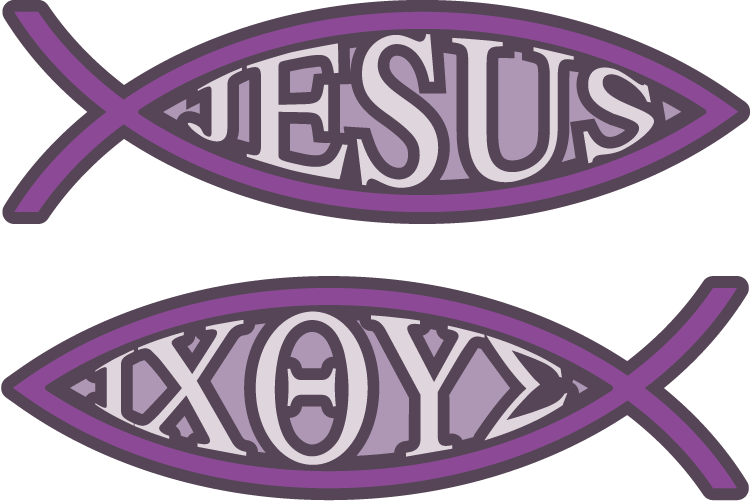
In light of this prophetic symbolism, which present day religious group qualifies as having fulfilled Jacob’s prophecy as to who the descendants of Ephraim and Manasseh would eventually become? Which religion on earth uses the fish as their symbol, speaks of a Messenger from YHVH as their Redeemer, and has the sign of the Paleo-Hebrew letter tav, which looks like a cross? The answer should be obvious. It is not Buddhists, the Moslems, the Hindus and not even the Jews. No! Only Christianity fits this enigmatic symbolic criteria. Many Christians are without a doubt the literal descendants of Ephraim and Manasseh. Those who are not, according to the Paul the apostle, once they come to saving faith in Yeshua, in some unique sense they become the descendants of Abraham (e.g., Gal 3:7, 29). Many of these unsaved descendants of Abraham will recognize Yeshua their Messiah on the day that he returns to Jerusalem (e.g., Zech 12:10).
Which nation on earth is without a doubt still the greatest Christian nation? It is the United States of America. Having an understanding of how Jacob’s prophecy to Ephraim and Manasseh was fulfilled may well be the first piece of the puzzle in identifying America in Bible prophecy.
Genesis 48:15–16, Elohim…the Angel/Messenger. The Angel or Heavenly Messenger is here being equated with Elohim. This truth is confirmed in Hosea 12:3–4 where we find similar parallel verbiage used.
Genesis 48:20, May Elohim make you. Many Jewish fathers pronounce this blessing over their sons every erev Shabbat (in Heb. this phrase means “entering the Sabbath,” i.e., Friday evening) to this day. If the descendants of Ephraim and Manasseh became the Christians (of which there are presently about two billion on earth, see notes at Gen 46:14, 16), then what are these Jewish fathers unwittingly asking of Elohim when pronouncing this blessing over their sons? That they become believers in the Christian Messiah (i.e., Jesus or Yeshua)!
Genesis 48:16, Let my name. The descendant of Ephraim and Manasseh would be known historically as the house of Israel.
Multitude in the midst of the earth. The ArtsScroll Stone Edition Tanakh translates this verse as follows:

‘May the angel who redeems me from all evil bless the lads, and may my name be declared upon them, and the names of my forefathers Abraham and Isaac, and may they [Ephraim and Manasseh] proliferate abundantly like fish within the land.’ Onkelos renders this verse as follows: ‘And like the fish of the sea may they multiply among the children of men on earth’ … The literal translation of VDS/dagah refers to procreation … [and] the word essentially denotes fish. (The ArtScroll Bereishis/Genesis Commentary, p. 2117, emphasis added)
What religious group on earth today has spread out across the face of the earth into all nations and has proliferated a message of Redemption pertaining to a Messenger of YHVH involving a cross-symbol resembling the ancient Paleo-Hebrew letter tav and uses a fish symbol as their symbol? Obviously, this can only be a prophetic reference to Christianity.
Genesis 48:19, Multitude of nations. Here is what the ancient Jewish sages say about this prophetic verse pertaining to the descendants of Ephraim:
Many nations will descend from him (i.e. the word [melo], fullness, connotes abundance, the phrase meaning: And his seed will become the abundance of the nation [Neter; Karnei Or].) (quote by Ibn Ezra;TheArtScroll Bereishis/Genesis Commentary,p. 2121).
The expression denotes abundant profligacy to a point that they will have to inhabit lands of other nations. It is an allusion to Ephraim’s expansive territory (quote by R. Avraham b. HaRambam; ibid.).
This refers to the Exile when the lands of others will be filled with his scattered descendants… See also Hosea 7:8: “Ephraim shall be mingled among the nations. (a quote by Radak; ibid.)
What kind of blessing was this prediction that one day his descendants—the Ten Tribes—would be scattered among the nations? R. Munk explains: while it is true that the dispersion was caused by the unfaithfulness and sinfulness of Ephraim’s descendants (Hos 7:8ff), Jacob’s blessing was not in vain for “they will return to God” and will have their share in the world to come (Sanhedrin 110b). And R. Eliezer adds: “Even the darkness in which the Ten Tribes were lost will one day become as radiant as the day’ (according to the version of Avos d’Rabbi Nosson 36). And in the perspective of history, did not these exiled children of the Patriarchs enlighten the nations among whom they were scattered? They did so by teaching their conquerors the fundamental ideas of the knowledge and love of God, ideals they had never forsaken. Hence they too have a messianic vocation and their Messiah the. …Messiah son of Joseph (Succah 52a), also called Messiah son of Ephraim (Targum Yonasan on Exod 40:11), will play an essential role in humanity’s redemption, for he will be the precursor of the… Messiah Son of David…” (ibid., pp. 2121–2122).
Ibn Ezra declares that many nations will descend from Ephraim, since the word many in this verse is the Hebrew word melo meaning “fullness,” and connotes abundance. The phrase literally means “and his seed will become the abundance of the nation” ([Neter; Karnei Or]; ibid. p. 2121)
R. Avraham b. HaRambam somewhat similarly states that the expression denotes abundant profligacy to a point that they will have to inhabit lands of other nations it is an allusion to Ephraim’s expansive territory (ibid.).
Can you better see in Jacob’s prophecies over the sons of Joseph and the resulting rabbinic interpretations of those prophecies, in a broad sense, that he is foretelling the Messianic or Hebrew roots movement (within the Christian church) of the final days? This movement will be instrumental in bringing Christians (many of whom are descendants of Joseph’s sons) back to their spiritual Hebraic (or the Book of Acts) roots as part of the restoration of all things before Messiah Yeshua, the Son of David, returns (Acts 3:21). The Book of Revelation also prophesies the last days Hebraic roots movement when it declares that the saints of the end-times will be those who have the message of the gospel or the faith and testimony of Yeshua the Messiah and who keep YHVH’s Torah-commandments (the Torah or instructions of YHVH given to Moses and Israel at Mount Sinai, Rev 12:17 and 14:12).
Genesis 49
Genesis 49
Genesis 49:1–28, Jacobs last words to his sons. In this chapter on his deathbed, Jacob prays a prophetic blessing over his sons pertaining to that which would befall their descendants “in the last days” (Gen 49:1). In our teaching article located on our ministry website entitled “Scripture Prophesies the Return of the Lost Sheep of the House of Israel—What Scriptural, Linguistic, Secular Historical & Rabbinic Sources Reveal on the Subject,” we discuss what happened to the twelve tribes of Israel after they were removed as captives out of the land of their inheritance and scattered across the earth as YHVH predicted through his prophets.
The subject of the dispersion and return of the lost ten tribes of Israel is one of the most overlooked biblical topics but is an important one in view of the numerous Bible prophecies that relate to it. One reason this subject is ignored is because over the years some false teaches have developed some wildly speculative and even racist ideas pertaining to this subject. We want nothing to do with such nonsense! We deal with the facts of the Scriptures, the wisdom of the ancient Jewish Bible scholars as well as hard evidence from renown secular scholars.
In this brief treatise, we examine some of the voluminous writings of the biblical prophets on the subject of the lost sheep of the house of Israel, and review what the Jewish sages, in line with the biblical prophets, have written on this subject over the centuries. Furthermore, we look at linguistic, historical and archeological evidence from some of the world’s leading scholars on these subjects. After examining the evidence, the reader is free make up their mind as to what happened to the lost ten tribes of Israel and whether they will return to the land of Israel in the last days to fulfill biblical prophecy. You can read the entire article by going to http://www.hoshanarabbah.org/pdfs/migrations.pdf.
Genesis 49:1, Last days (NKJV)/End of days (The Artscroll Chumash)/In the aftermath of days (Hirsch)/In the aftertime of days (Fox)/In the future days (Friedman)/In the days to come (NAS)/In days to come (NIV).Looking at Jacob’s last prophetic words over his sons, and viewing them in the light of past history, it seems that the nature of these prophecies favors a translation more along the lines of “in the days to come” rather than “in the last days.”
Genesis 49:7, I will scatter/divide them.For Simeon, this prophecy was fulfilled in that they had an inheritance both in the area Judah and among the region of northern tribes. For Levi’s part, his descendants were given the priesthood and were scattered in 48 cities throughout Israel (Num 35:7). YHVH put this tribe’s passion against evil to good use. Levi’s vengeful anger against Shechem for raping Dinah (Gen 38) was excessive and outside the bounds of Torah-law. However, this passion for righteousness and justice became further evident as Levi’s descendants were the ones who stood up against the rebellious Israelites at the golden calf. Moses used this tribe to execute YHVH’s judgment against the golden calf worshippers (Exod 32:25–29). This time, Levi acted in accordance to and within the bounds of the Torah as prescribed by Moses. For this, they were granted the priesthood and as such, were scattered throughout Israel (in fulfillment of Jacob’s prophecy) to better accomplish their priestly duties to their fellow Israelites. They became responsible for teaching Israel YHVH’s Torah and for acting as judges of the law (Deut 33:10; 24:8; Lev 24:10–11). The beauty of this story is that YHVH can take the flawed character traits or misguided and even carnal passions of an individual or of a family or a society and redeem them by redirecting them along righteous lines in accordance with Torah principles. Zeal and passion are wonderful character attributes, but they need to be channeled in a godly and righteous direction. To the Laodicean saints in Revelation, YHVH said he would rather they be hot or cold in their passions (Rev 3:15–16). He had no use for lukewarmness and apathy. One who is spiritually cold and dead is waiting to be awakened spiritually. One who already possesses a hot passion for YHVH simply needs spiritual direction. One who is lukewarm and apathetic doesn’t even care enough to go one way or the other.
Genesis 49:8–9, Hand…neck…enemies…lion’s cub.Judah was bold. This is exemplified in the person of David who was a bold and daring warrior from his youth. This is why the tribe of Judah led the Israelites into battle, and was given the kingship. Yeshua is the Lion of the tribe of Judah and is returning as the warrior king to place his hand on the neck of his enemies and to destroy them.
Genesis 49:10–12, The scepter. Below is my commentary on these verses.
The Genesis 49 Prophecy of Yeshua’s Redemptive Work at the Cross
Few verses are reveal so about YHVH’s plan of redemption relating to Yeshua the Messiah so tersely as Jacob’s prophecy over Judah in Genesis chapter 49. These three verses are easily read over without much thought by most people, but when the poetic imagery is unearthed, Jacob’s enigmatic and symbolic prophecy yields a rich trove of treasure and is eye-poppingly pregnant with deep spiritual implications that involves every disciple of Yeshua the Messiah. Here is the prophecy:
The scepter shall not depart from Judah, nor a lawgiver from between his feet, until Shiloh come; and unto him shall the gathering of the people be. Binding his foal unto the vine, and his ass’s colt unto the choice vine; he washed his garments in wine, and his clothes in the blood of grapes: His eyes shall be red with wine, and his teeth white with milk. (Gen 49:10–12)
This passage is a clear reference to the Messiah and the Messianic Age (the time when Messiah would come to rule the earth) and has been so recognized by the Jewish sages from time immemorial (The ArtScroll Stone Edition Chumash, p. 279). “The general consensus (with few exceptions) of Rabbinic interpretation is that this phrase [Until Shiloh arrives] refers to the coming of the Messiah…” (The ArtScroll Bereishis/Genesis Torah commentary, p. 2152). In fact, Onkelos [a second-century scholar who translated the Torah (or Pentateuch) into Aramaic] in his Aramaic version of the Torah translates this version as follows: “Until the Messiah comes, to whom the kingdom belongs” (ibid.). Rashi (b. ad1040 and recognized by Jewish scholars as probably the preeminent Torah commentator of the modern era) “concurs and similarly comments: Until the King Messiah will come…, to whom the kingdom belongs. According to the Midrash, הילש [shiloh] is a composite of יש and יל, [meaning] “a gift to him”—a reference to King Messiah to whom all peoples will bring gifts. See Isaiah 18:7; Psalms 76:12” (ibid., p. 2153). It should not be difficult to see the fulfillment of this rabbinic understanding in the magis’ giving of gifts to the young child Yeshua (Matt 2:11).
Are there any illusions here to the incarnation or virgin birth of the Messiah? Of the incarnation we read the following in The ArtScroll Bereishis/Genesis Torah commentary:
Midrash Tanchuma preserves an opinion that הילש [shiloh] is derived from הילש [shil-yah] meaning “little child, (lit. the amniotic sac in which the fetus is formed: comp. Deut 28:57).” Thus, the passage means: “Until his scion(i.e., Messiah) comes” (ibid., p. 2153).
Of course these Jewish commentators in the same passage, while readily admitting that Messiah will be born naturally of a woman, are quick to disavow themselves of any implications of his deity (i.e., the incarnation; ibid.).
There was no question in the minds of the Jewish sages that all the poetic metaphors in this verse point to the Messiah. For example, the donkey tethered to the vine foresaw how Messiah’s kingdom of peace would dwell amidst Israel, a nation compared by the sages to a vine (Chullin 92a): “For the vineyard of YHVH of Legions is the house of Israel” (ibid., p. 2151).
Additionally, Jewish scholar Samson Raphael Hirsch (an eminent nineteenth-century Orthodox Jewish Torah commentator) similarly observes how Jacob visualizes the Messiah, conqueror of humanity, not on a steed, but on a young donkey. The donkey is the biblical beast of burden that always represents peace, well-being, and national greatness, whereas the steed represents military might. Accordingly, the Jewish conception of royal power is not represented by the number of horses, for it is forbidden for the king to accumulate many horses (Deut 17:16). Evidently, what Hirsch, a non-believing Jew, fails to realize is that Messiah Yeshua fulfilled this prophecy in Matthew 21:5 at his first coming and will return the second time astride a military steed (Rev 19:11 ).
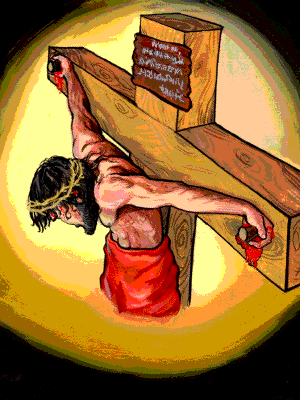
Consequently the future Redeemer of Jewry and humanity appears here in connection with the donkey, symbolizing the twofold prophetic vision of peace and material well-being. For to tie up his animal—especially a donkey’s frisky colt—to the vine, implies a greatly increased development of nature (the vine being as strong as a tree) and extraordinary abundance (see Zech 9:9; ibid., p. 2155). Rashi sees similar Messianic implications in the poetic and prophetic language of this verse and further sees that “the vine represents the righteous, and the vine branch represents ‘those who engage in Torah.’ The righteous will congregate around the Mashiach, while ‘those who engage in Torah’ will study with him (The ArtScroll Sapirstein Edition Rashi Bereishis/Genesis commentary, p. 545). Interestingly, in the Testimony of Yeshua, the Master likens himself to a vine with his believers as branches attached to that vine (John 15:1–5). Likewise, Jewish scholars refer to the donkey, upon whom Messiah will ride, as being tied to the vine which has now become as thick as a tree. As we shall discuss in more detail later, this is an allusion to the cross to which Yeshua was tied by the Romans.
Let’s now examine the phrase “he washed his garments in wine, and his clothes in the blood of grapes”to see if this phrase yields any clues about the virgin birth. Let’s read the following biblical passages as they relate to the verses in question:

Wash you, make you clean; put away the evil of your doings from before mine eyes; cease to do evil; Learn to do well; seek judgment, relieve the oppressed, judge the fatherless, plead for the widow. Come now, and let us reason together, saith the YHVH: though your sins be as scarlet, they shall be as white as snow; though they be red like crimson, they shall be as wool. (Isa 1:16–18)
For the life of the flesh is in the blood: and I have given it to you upon the altar to make an atonement for your souls: for it is the blood that maketh an atonement [of sin] for the soul. (Lev 17:11)
And from Yeshua the Messiah, who is the faithful witness, and the first begotten of the dead, and the prince of the kings of the earth. Unto him that loved us, and washed us from our sins in his own blood. (Rev 1:5)
And I said unto him, Sir, thou knowest. And he said to me, These are they which came out of great tribulation, and have washed their robes, and made them white in the blood of the Lamb. (Rev 7:14)
And he took the cup [of the vine], and gave thanks, and gave it to them, saying, Drink ye all of it; for this is my blood of the new testament, which is shed for many for the remission of sins. (Matt 26:27–28)
Whom Elohim hath set forth to be a propitiation through faith in his blood, to declare his righteousness for the remission of sins that are past, through the forbearance of Elohim. (Rom 3:25)
In whom we have redemption through his blood, the forgiveness of sins, according to the riches of his grace. (Eph 1:7)
In whom we have redemption through his blood, even the forgiveness of sins. (Col 1:14)
I am the true vine, and my Father is the husbandman. Every branch in me that beareth not fruit he taketh away: and every branch that beareth fruit, he purgeth it, that it may bring forth more fruit. Now ye are clean through the word which I have spoken unto you. Abide in me, and I in you. As the branch cannot bear fruit of itself, except it abide in the vine; no more can ye, except ye abide in me. I am the vine, ye are the branches: He that abideth in me, and I in him, the same bringeth forth much fruit: for without me ye can do nothing. (John 15:1–5)
In these Scripture references, we begin to see a common theme emerging. The Messiah is likened to a grape vine. Grape juice is a biblical symbol of blood the shedding of which remits or atones for sin. Sin causes one’s spiritual garments to be stained red. From the Testimony of Yeshua we learn that the blood of Yeshua the Messiah cleanses the spiritual garments of sinful individuals, which is symbolic of the spiritual cleansing of sin out of one’s life.
How does the “blood of the grapes” reference in Genesis 49:12 (cp. Deut 32:14 where the same Hebrew expression is used) portend the virgin birth of the Messiah? Quite simply this. Had Messiah’s blood been tainted by the sin-stain of Adam’s “fall” causing the separation of spiritual relationship with YHVH-Elohim occasioned by his sin resulting in death, which passed on to all of Adam’s (Rom 5:12–14), then Messiah could not have been the perfect, sin-free sacrificial lamb atoning for the sins of the world. Since spiritual inheritance, in this case, the curse of death brought on by the sin of Adam, is passed on down through the father’s lineage (Jer 32:18) then in order not to inherit the taint of sin resulting in the sting of death (1 Cor 15:56)—death being the result of sin which is the transgression of the Torah-law of Elohim (Ezek 18:4; 1 John 3:4)—Messiah could not have contained the life blood of a physical father. This is poetically alluded to in the verse under analysis in this section: Genesis 49:12—“he washed his garments in wine, and his clothes in the blood of grapes.” This verse indicates that the source of Messiah’s blood would be other than that of a man. It express a corollary idea to that expressed in Genesis 3:15 where Elohim prophesies that the woman’s seed will crush the serpent’s head. (Since women do not have “seed” or spermatozoon—only men do—this is understood to be an allusion to impregnation of Mary by YHVH Elohim and not by man.) In this regard it is interesting to note what Yeshua said in the Gospel accounts of John 6:53–56 and Matthew 26:27–28,
Then Yeshua said unto them, Verily, verily, I say unto you, Except ye eat the flesh of the Son of man, and drink his blood, ye have no life in you. Whoso eateth my flesh, and drinketh my blood, hath eternal life; and I will raise him up at the last day. For my flesh is meat indeed, and my blood is drink indeed. He that eateth my flesh, and drinketh my blood, dwelleth in me, and I in him. (John 6:53–56)
And he took the cup [of the vine], and gave thanks, and gave it to them, saying, Drink ye all of it; for this is my blood of the new testament, which is shed for many for the remission of sins. (Matt 26:27–28)
Some readers may view John’s account of Yeshua’s teachings as a gross reference to cannibalism or some other such abominable and anti-Torah practice. But in reality, Yeshua is speaking symbolically of the fruit of the vine as representing his blood—the blood of the atonement. Did Yeshua pull this poetic symbolism out of thin air without any textual basis from the Tanakh? Absolutely not. We have already seen that both Moses (Deut 32:14) and the patriarch Jacob in the Torah, while prophesying about the future Messiah (Gen 49:11), made reference to the typology between blood and grapes.
This imagery in the Scriptures was not lost on Justin Martyr (a.d. 100a.d. to 169a.d.), an early church father, who wrote the following (in reference to Deut 32:15 and Gen 49:11) in Dialogue With Trypho, a Jew (ca. a.d.160):
“… [O]f whose blood, Moses…, when speaking in a parable, said, that He would wash His garments in the blood of the grape; since His blood did not spring from the seed of man, but from the will of Elohim” (Dialogue, chap. 63).
Despite our entire discussion above, there may still remain a question in the reader’s mind as to how exactly Genesis 49:11 (“ Binding his foal unto the vine, and his ass’s colt unto the choice vine; he washed his garments in wine, and his clothes in the blood of grapes”) perfectly foreshadows the redemptive work of Yeshua the Messiah as outlined in the Testimony of Yeshua. For example, it appears that the Messiah is washing his own garments with his blood and not the garments of his people. What is going on here? Allow me to present to you an expanded rendering from the Hebrew of what this verse is actually saying and see if some of the confusion doesn’t clear up. Here is our Scripture verse under consideration again:
Genesis 49:1, ([listed with Strong’s Concordance reference numbers] “Binding (631) (8802) his foal (5895) unto the vine (1612), and his ass’s (860) colt (1121) unto the choice vine (8321); he washed (3526) (8765) his garments (3830) in wine (3196), and his clothes (5497) in the blood (1818) of grapes (6025).”
Now here is my amplified version of this passage based on a study of the meanings of the Hebrew words:
He (Judah or Shiloh/Messiah) binds his young donkey or burden-bearer unto the vine tree and his she ass’s (i.e., apostate Israel, see Isa 1:3–4; Jer 2:24) son to the vine of the choicest, reddest, richest grapes; he (Judah or Messiah) washed by treading like a fuller (a fuller is one who shrinks and thickens woolen cloth by moistening, heating and pressing) his garments or vestures in wine; his robes in the blood of grapes or wine.
The imagery in this verse is very poetically rich and prophetic. It is also a poetic picture of the redemptive work of Messiah who, as a son from the tribe of Judah, would bear the sin burden (Isa 53:4; Matt 11:28–30) on his back like a donkey for his apostate and adulterous people of Israel. He would be tied to a vine tree (the cross, even as Isaac was tied to the altar on Mount Moriah in Gen 22:9) from which the blood of the grapes would flow. He would become sin for his people (2 Cor 5:21; John 3:14) and with his choicest, richest, reddest blood of his grapes (untainted by the sin of Adam because of his virgin birth)—a wine reminiscent of Yeshua’s first miracle of turning the water into richest wine at the Cana of Galilee wedding feast (John 2:1–11)—he then takes the sins of the people upon himself and cleanses them from their sins, like a fuller (see definition above of what a fuller does) whereby, though their sins be as scarlet, through his shed blood and the redemptive work at the cross, the sins of Israel would be trod out and pressed rendering his people spiritually white as wool (Isa 1:18). The prophet Malachi alludes to this very idea in his messianic prophecy:
But who may abide the day of his coming? and who shall stand when he appeareth? for he is like a refiner’s fire, and like fullers’ soap: And he shall sit as a refiner and purifier of silver: and he shall purify the sons of Levi, and purge them as gold and silver, that they may offer unto the YHVH an offering in righteousness. (Mal 3:2–3)
Truly, after all of this, it could be said of Israel, “These are they which…have washed their robes, and made them white in the blood of the Lamb” (Rev 7:14). For this reason, these people have every reason to proclaim jubilantly:
Let us be glad and rejoice, and give honour to him: for the marriage of the Lamb is come, and his wife hath made herself ready. And to her was granted that she should be arrayed in fine linen, clean and white: for the fine linen is the righteousness of saints. (Rev 19:7–8)
Genesis 49:24, Shepherd…Stone of Israel. This is yet another irrefutable prophetic reference to the Messiah of Israel whom Scripture refers to in various places as “the Stone the builders rejected,” “the Chief Cornerstone,” “Precious Cornerstone” and “the Rock of our Salvation” (Ps 118:22; Isa 28:16; Mark 12:10; Eph 2:20; 1 Pet 2:6–8). Yet this verse appears to be saying that this Messiah is coming from the tribe of Joseph. At the same time, Jacob’s prophecy to Judah contains another classic Messianic prophecy in the reference to the Shiloh-figure who was to come (Gen 49:10). These two prophecies led some Jewish sages to believe that two Messianic figures would arise out of Israel’s tribes—one from Judah and other from Ephraim.
What kind of blessing was this prediction that one day his descendants—the Ten Tribes—would be scattered among the nations? R. Munk explains: while it is true that the dispersion was caused by the unfaithfulness and sinfulness of Ephraim’s descendants (Hos 7:8ff), Jacob’s blessing was not in vain for “they will return to God” and will have their share in the world to come (Sanhedrin 110b). And R. Eliezer adds: “Even the darkness in which the Ten Tribes were lost will one day become as radiant as the day’ (according to the version of Avos d’Rabbi Nosson 36). And in the perspective of history, did not these exiled children of the Patriarchs enlighten the nations among whom they were scattered? They did so by teaching their conquerors the fundamental ideas of the knowledge and love of God, ideals they had never forsaken. Hence they too have a messianic vocation and their Messiah the. … Messiah son of Joseph (Succah 52a), also called Messiah son of Ephraim (Targum Yonasan on Exod 40:11), will play an essential role in humanity’s redemption, for he will be the precursor of the… Messiah Son of David…” (The ArtScroll Bereishis/Genesis Commentary, pp. 2121–2122).
How do we explain this seeming contradiction in view of the facts that there was only one Messiah, and his name was Yeshua, and he came from the tribe of Judah? These two Messiahs are explained in Yeshua’s two comings. In his first coming, he was like Joseph, a suffering servant who then become a king after enduring great hardships (see Isaiah chapter 53). When he comes back the second time, he will be like David, the conquering, triumphant or warrior king, where he will rule over the world and a united Israel (Rev 19:11–16). The Jewish sages had a concept of these two messiahs, as well, but were unclear as to whether they would be the same person or two different individuals, and how much time would separate these two comings. With perfect 20-20 hindsight, we can now look back and see how Yeshua fulfilled this prophecy as the Messiah Son of Joseph (figuratively speaking) at this first coming, and how he is yet to come as the Messiah Son of David at his second coming where, and as the Conquering King, he will defeat all of his enemies and destroy the end times Babylon the Great New World Order system and establish his earthly millennial kingdom where he will rule as King of kings (Rev 19–20).
Genesis 49:16, Dan. See notes at Matt 16:13.
Genesis 50
Genesis 50:11, Beyond the Jordan. Beyond is the Hebrewword eber meaning “across.” This was the roundabout way of reaching Machpelah. The Jewish and Christian commentaries I have studied don’t give a good reason for Jacob’s burial entourage taking this most indirect route to the burial cave of the patriarchs. It is possible that Jacob was, out of faith in the promises of Elohim, prophetically tracing the steps that his descendants would take several generations later in entering the Promised Land. It is almost as if Jacob was showing the future generations of Israelites the route he wanted them to take from Egypt to the Promised Land to fulfill biblical types and shadows.
If Jacob’s intent was to show future generations of his descendants the preferable route to enter the Promised Land, this begs a question for us. Do you have righteous parents? How about righteous spiritual fathers—the fathers of our faith such as the biblical apostles and prophets, Yeshua himself, and, of course Moses and the patriarchs? They have laid out the route for us to take to reach the eternal Promised Land of our spiritual inheritance or the kingdom of Elohim. Are we following this path, or have we chosen another path that leads to who knows where?
Malachi was the final prophet who closed out the Tanakh before the coming of the promised Messiah. He uttered a strong warning to all who have ears hear and a heart to understand lest the fiery judgments of YHVH Elohim come upon you and your ashes be trampled under the feet of the righteous.

Remember the Torah-law of Moses, My servant, Which I commanded him in Horeb for all Israel, With the statutes and judgments. Behold, I will send you Elijah the prophet Before the coming of the great and dreadful day of YHVH. And he will turn The hearts of the fathers to the children, and the hearts of the children to their fathers, Lest I come and strike the earth with a curse. (Mal 4:4–6)
These are the final warning words and wise admonitions with which the Tanakh ends. Let’s heed these wise words and turn our hearts back to the righteous fathers of our faith. Maybe they knew something that we don’t—the way to Elohim!
Genesis 50:19–21, You meant evil. The words of Joseph here are prophetic of Yeshua, Messiah Son of Joseph, the Suffering Servant. Yeshua’s murderers meant him evil, but Elohim meant it for good that Yeshua, like Joseph, “might save many people alive” out of the midst of spiritual Egypt (v. 20). Verse 21 reveals Joseph’s tender heart of love for his brethren in desiring to provide for their needs and to comfort them. This is the same heart that Yeshua our Messiah has shown to each of us if we will receive him.
Blessed be the Elohim and Father of our Master Yeshua the Messiah, the Father of mercies and Elohim of all comfort, who comforts us in all our tribulation, that we may be able to comfort those who are in any trouble, with the comfort with which we ourselves are comforted by Elohim. (2 Cor 1:3–4)

